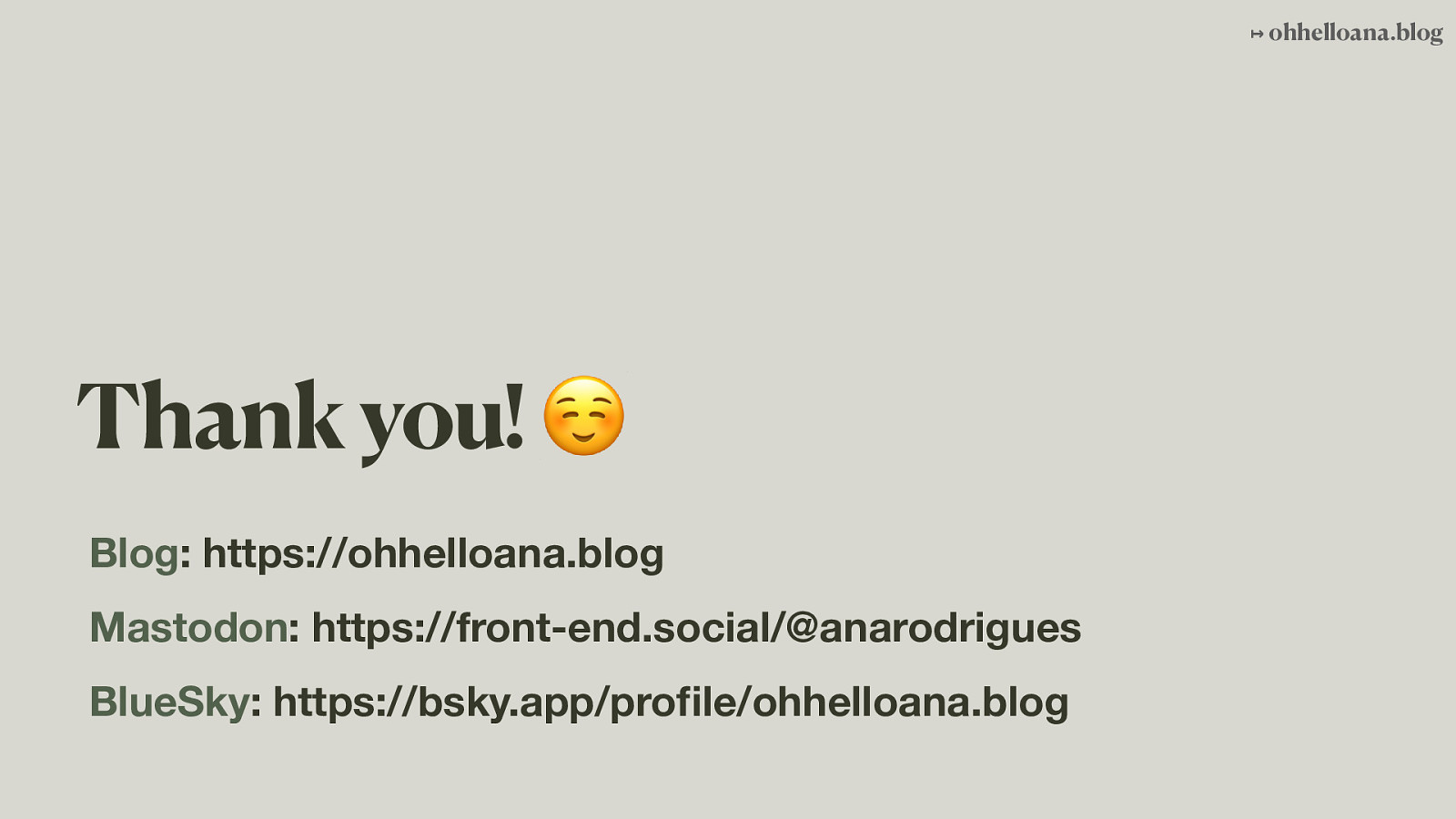A presentation at OpenUK Digital Meetup #4 The IndieWeb in November 2024 in by Ana Rodrigues


That’s me at IndieWebCamp Brighton 2024! My name is Ana Rodrigues. I work as a front-end developer at Hactar.is My first personal website was built 20 years ago. fi
Thank you so much Jamie and Lorna for your invitation and thank you everyone for spending your lunch hour with us.

My home on the web is my blog: ohhelloana.blog and having my own personal website already grants me enough qualifications to call myself someone who lives the IndieWeb spirit.

By having your own personal website you are as indie web as it gets. That’s right. Whether you participate in the IndieWeb community or not: by having your own personal website you are as indie web as it gets.

Calum and I at a past Homebrew Website Club It’s great to be speaking at a meet-up with Calum about the IndieWeb - We met because Calum used to run the London chapter of the HWC. HWC, under the IndieWeb umbrella, is a regular meetup of people passionate about or interested in creating, improving, building, designing their own website. And one evening, sometime in either 2017 or 2018, I turned up to one meet-up and I’m so glad I did because I wouldn’t be here today if I hadn’t.

• https://adactio.com/links/13151
Before that, I learned about the IndieWeb community from a talk by Jeremy Keith called “Building Blocks of the Indie Web”. And at the time it spoke to me on a deep level because I had always been the type of person who was keen on learning and sharing in public (aka online) about code during my teenage years but had stopped ever since I started to work professionally as a developer.

• https://ohhelloana.blog/ blogging-and-me/ And found myself the following year, on the same stage, sharing my frustration on how I wished our community would blog more and about my fears that make me blog less.
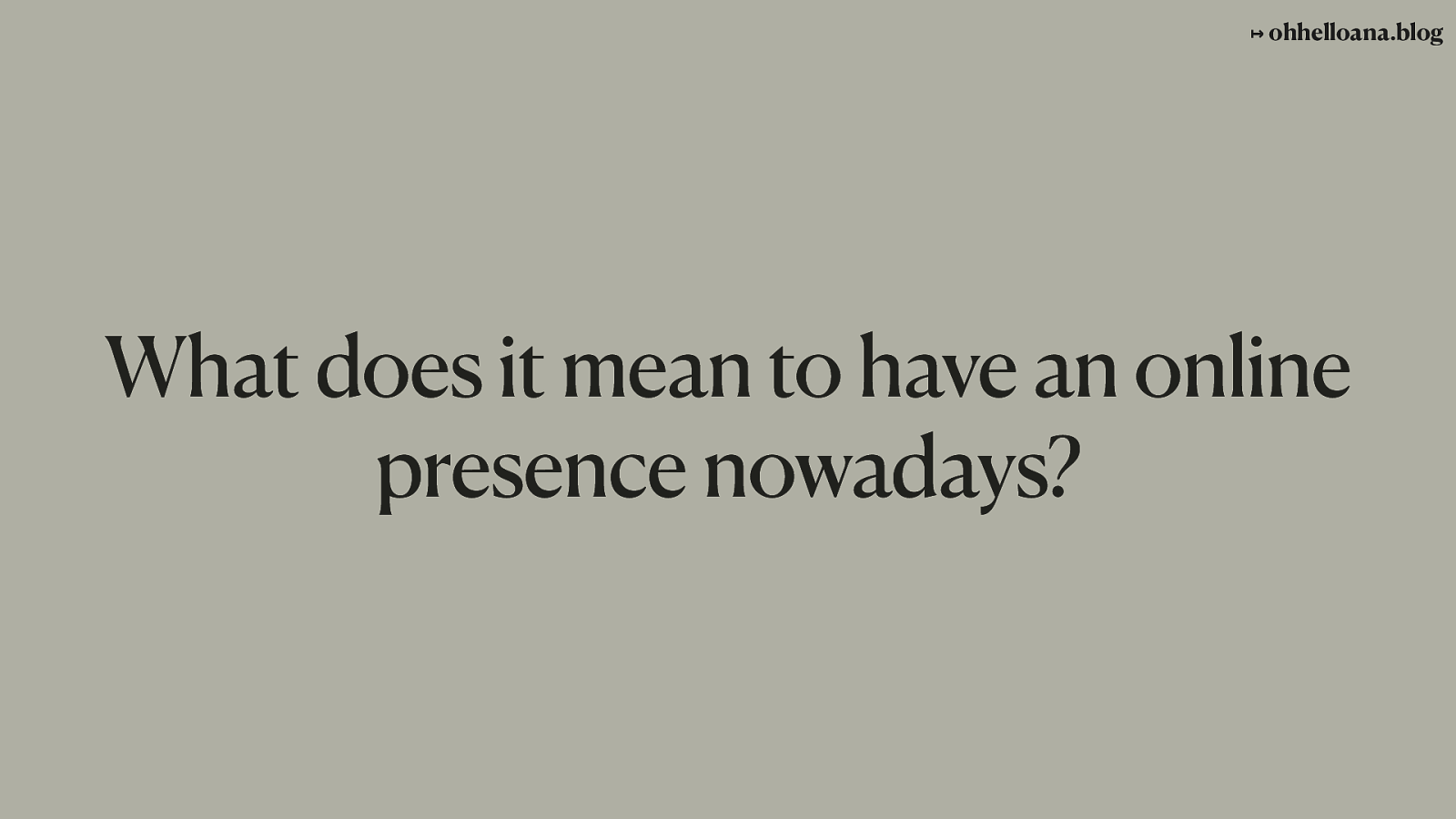
For the majority of people, to be online, or to have an online presence, is to have an account on a website owned by a corporation or by someone with too much money.
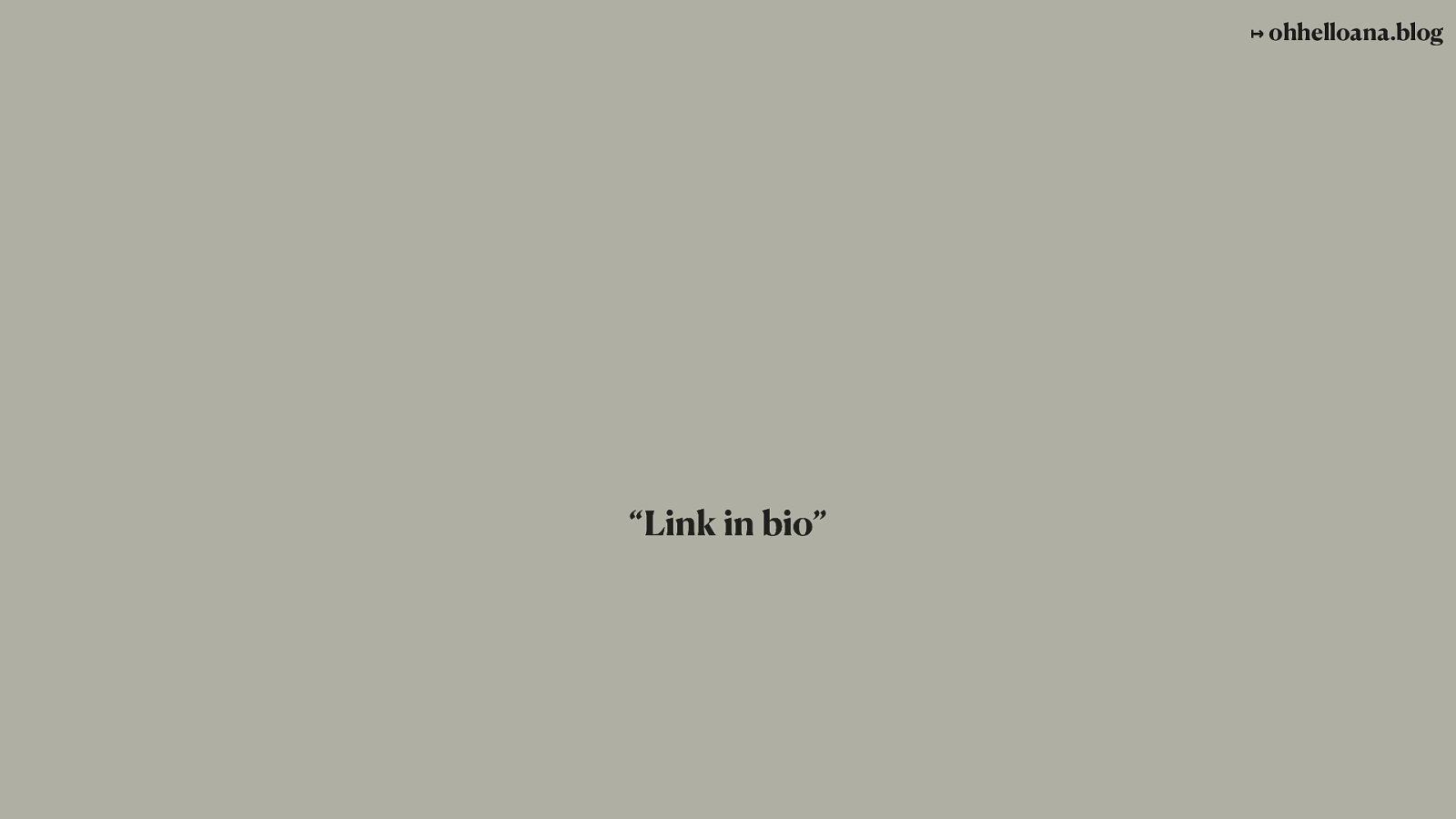
This means no transparency, no ownership, no privacy, limitations, harassment etc.

And, today, more than ever, people are being more vocal about the limitations and consequences of this. So, for a couple of years now, you may have seen people, mostly people with a tech inclination, to share their nostalgia about how the web was in the early 2000s.

I recently came across this project that describes itself with:

“Salvaged.nu is a place on the internet that recovers, repairs, and reuploads Photoshop resources from lost personal blogs from the mid-2000’s.”

“With the web becoming more of a commercial, capitalist hellscape everyday, we wanted to save what resources we could in order to encourage this creativity to blossom again. We aim to inspire people to experiment making digital collage again, whether it be for their own artistic creations or their personal blog, and pay homage to the creative teenagers that made these resources over 15 years ago.”

FTP <3 Fan-sites DynamicDrive Geocities Web Rings MySpace
And I am sharing this because I was one of those teenagers more than 15 years ago. I would spend all my time after school in forums learning how to code, copying snippets people shared, downloading brushes, textures and even random software to create whatever I wanted. Then I would spend the rest of time writing tutorials, learning and sharing in the open on my little personal websites because it truly felt like we were all in this together.

I took this photo from a slide from a talk from Lu Wilson which captures this names you find familiar: IndieWeb, Small web, social web, cozy web, smol web, sustainable web etc.

In the end, all these communities have the same goal: People have been trying to create little spaces that capture a feeling of joy from simply creating your own web presence without the capitalism, surveillance, pressure to perform, advertising, gates, tech complexity and with a human touch instead.
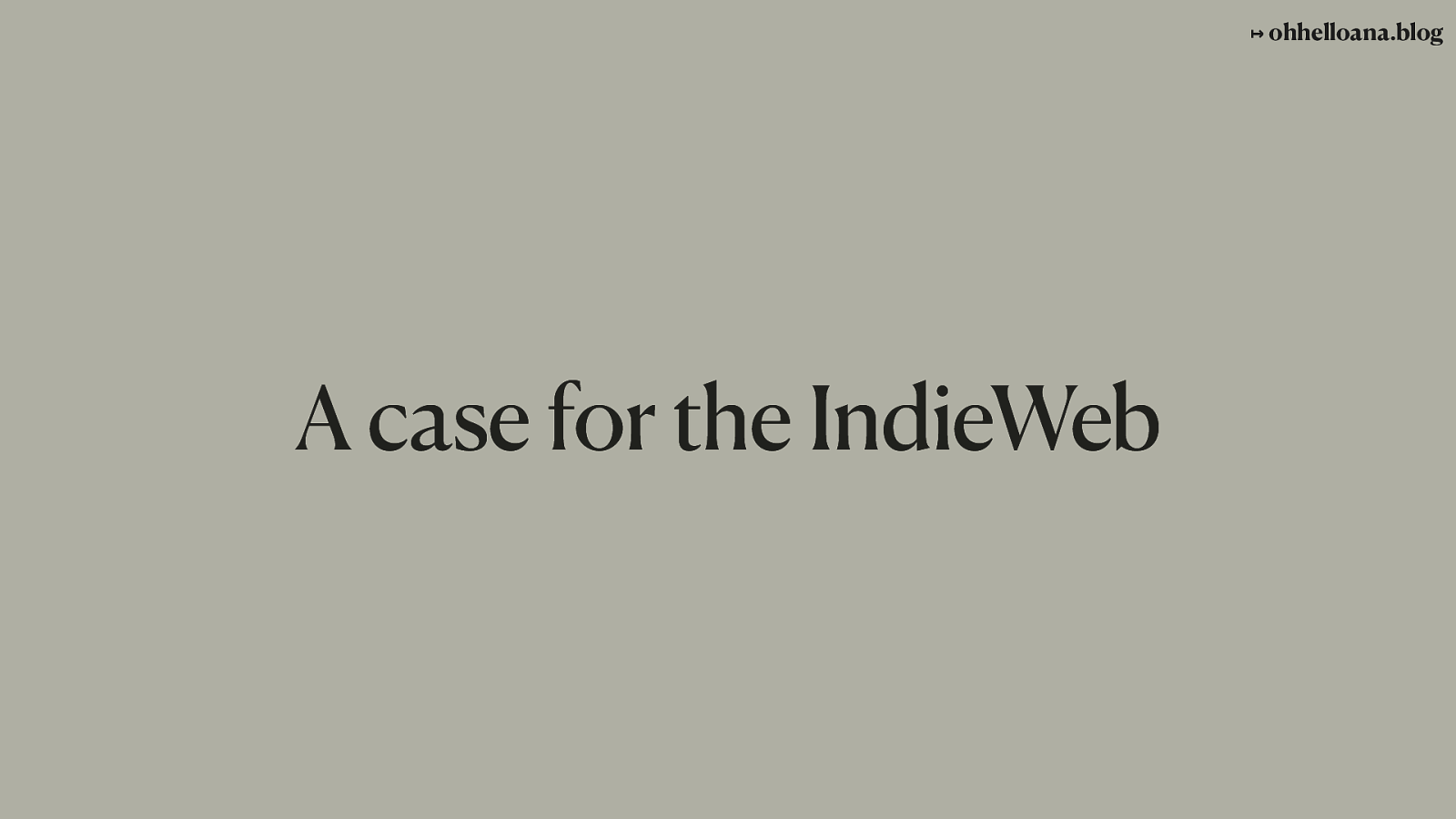
I’m going to share with you how the IndieWeb community in particular has helped me, despite being a tech-y person myself.
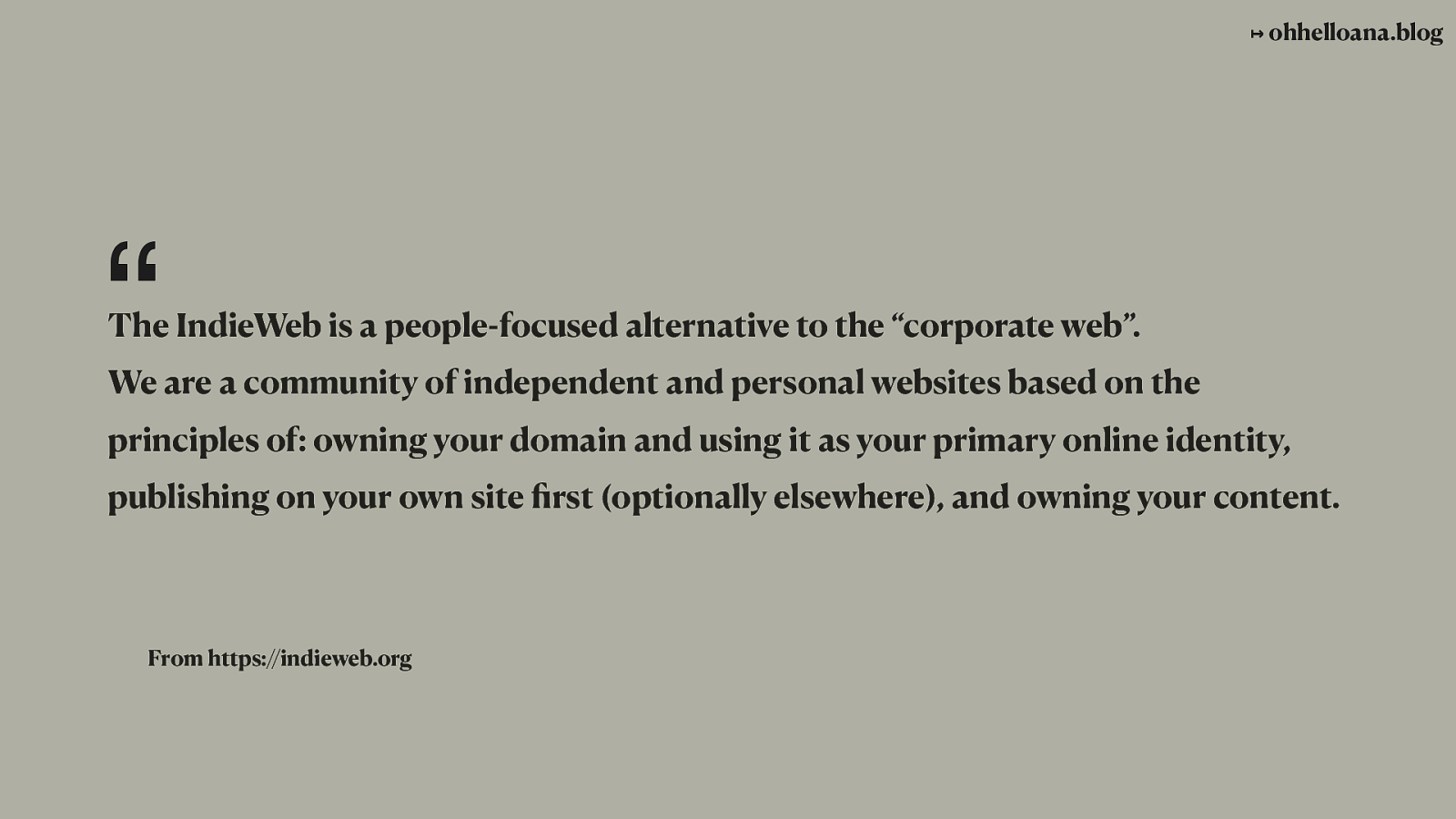
The IndieWeb is a people-focused alternative to the “corporate web”. We are a community of independent and personal websites based on the principles of: owning your domain and using it as your primary online identity, publishing on your own site first (optionally elsewhere), and owning your content.
From https://indieweb.org
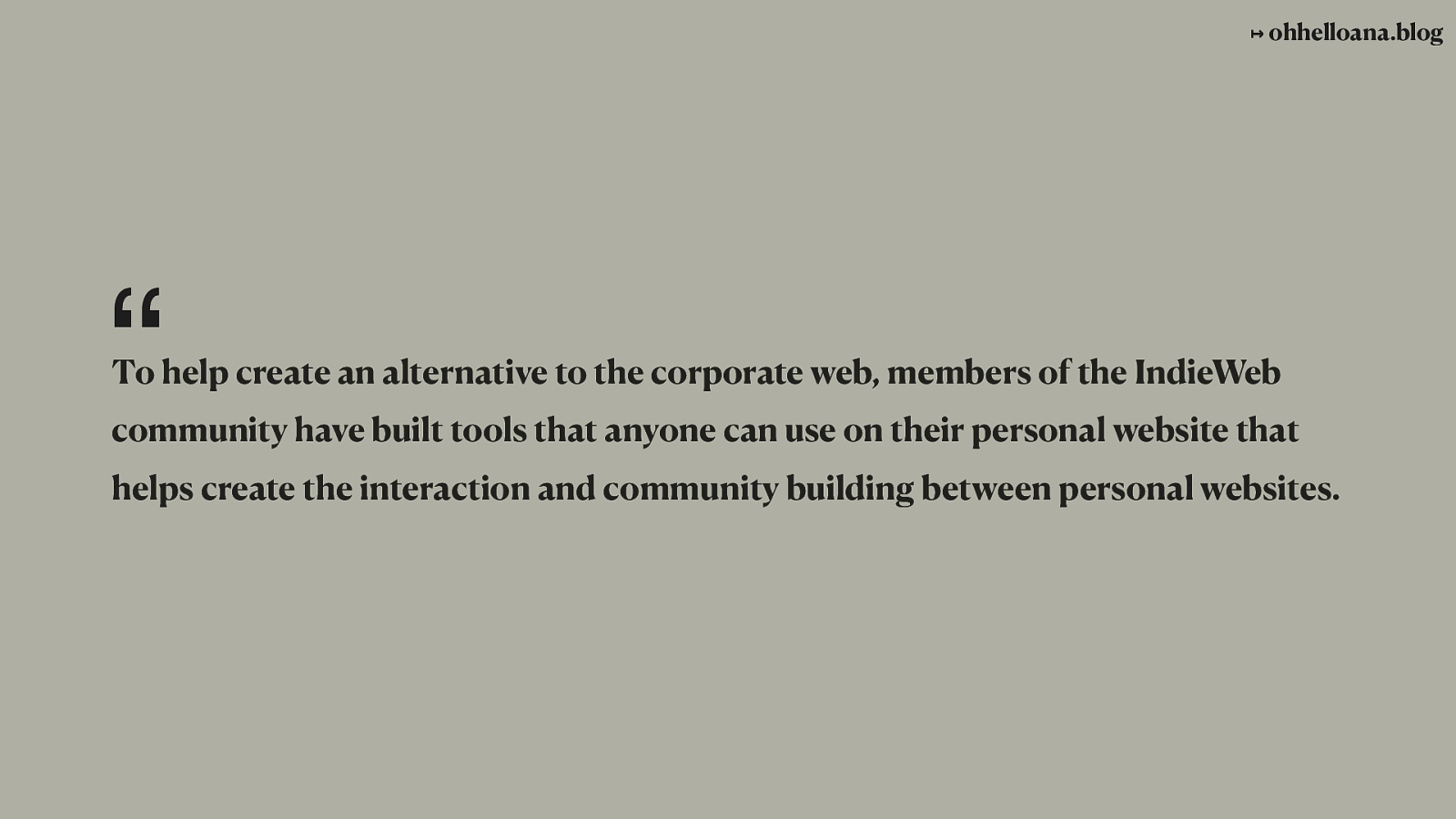
In other words:
To help create an alternative to the corporate web, members of the IndieWeb community have built tools that anyone can use on their personal website that helps create the interaction and community building between personal websites.
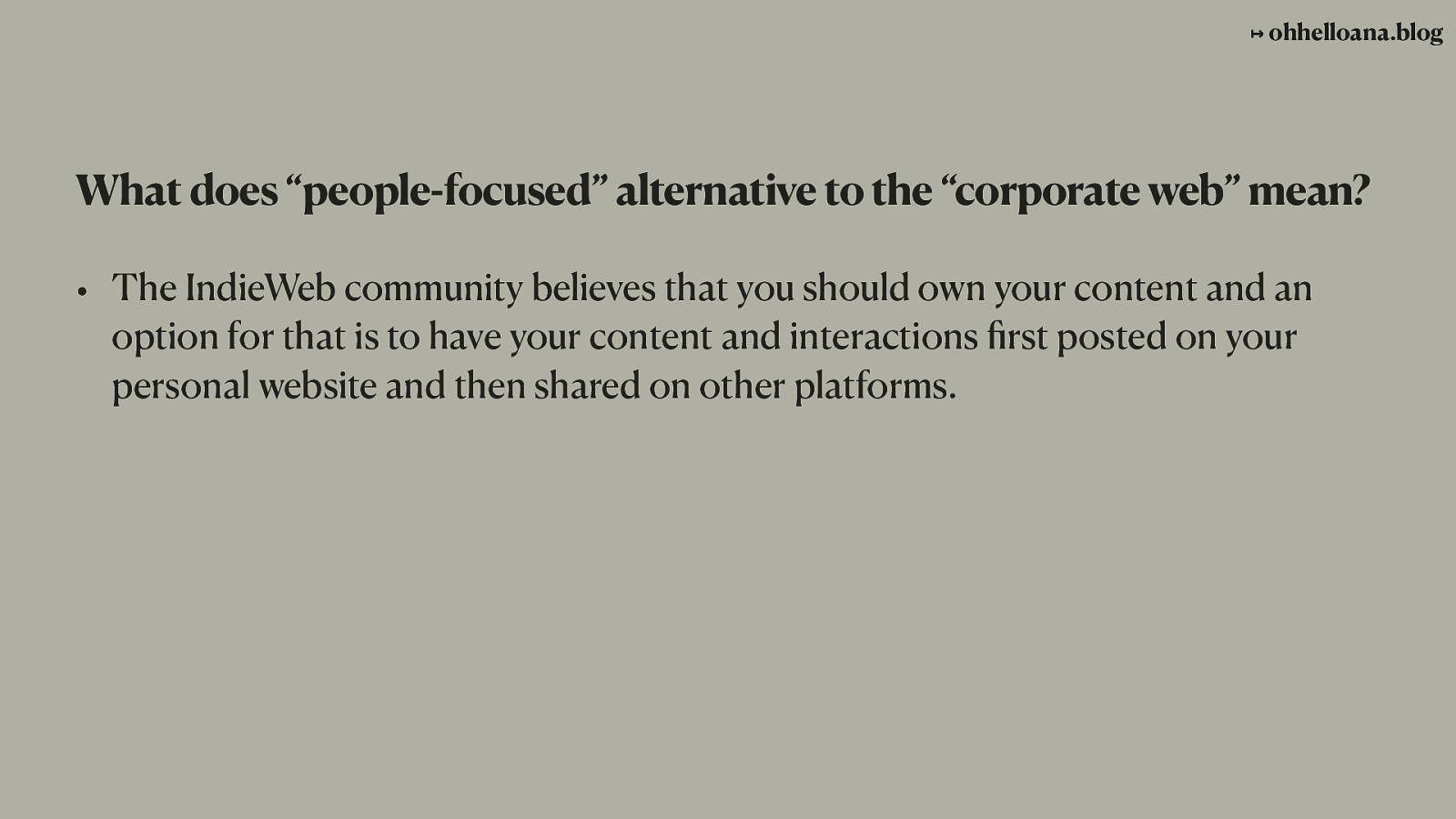
• The IndieWeb community believes that you should own your content and an option for that is to have your content and interactions first posted on your personal website and then shared on other platforms. Things like your articles, status, images, likes, comments etc would forever be in your ownership, with a permanent link and you can keep a record of it forever in case any platform/social media is deleted or you’re banned.
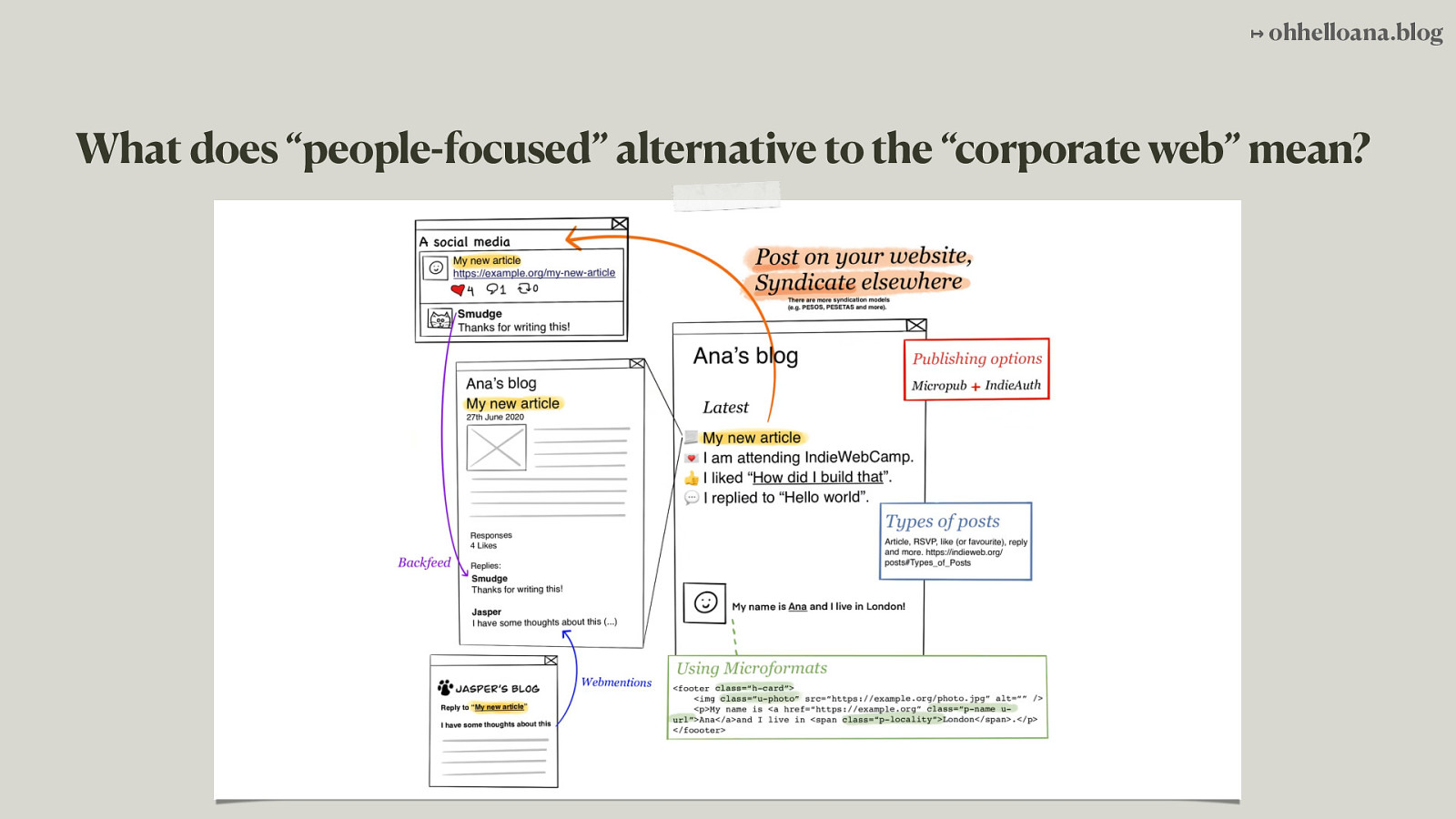
And it can look something like this.
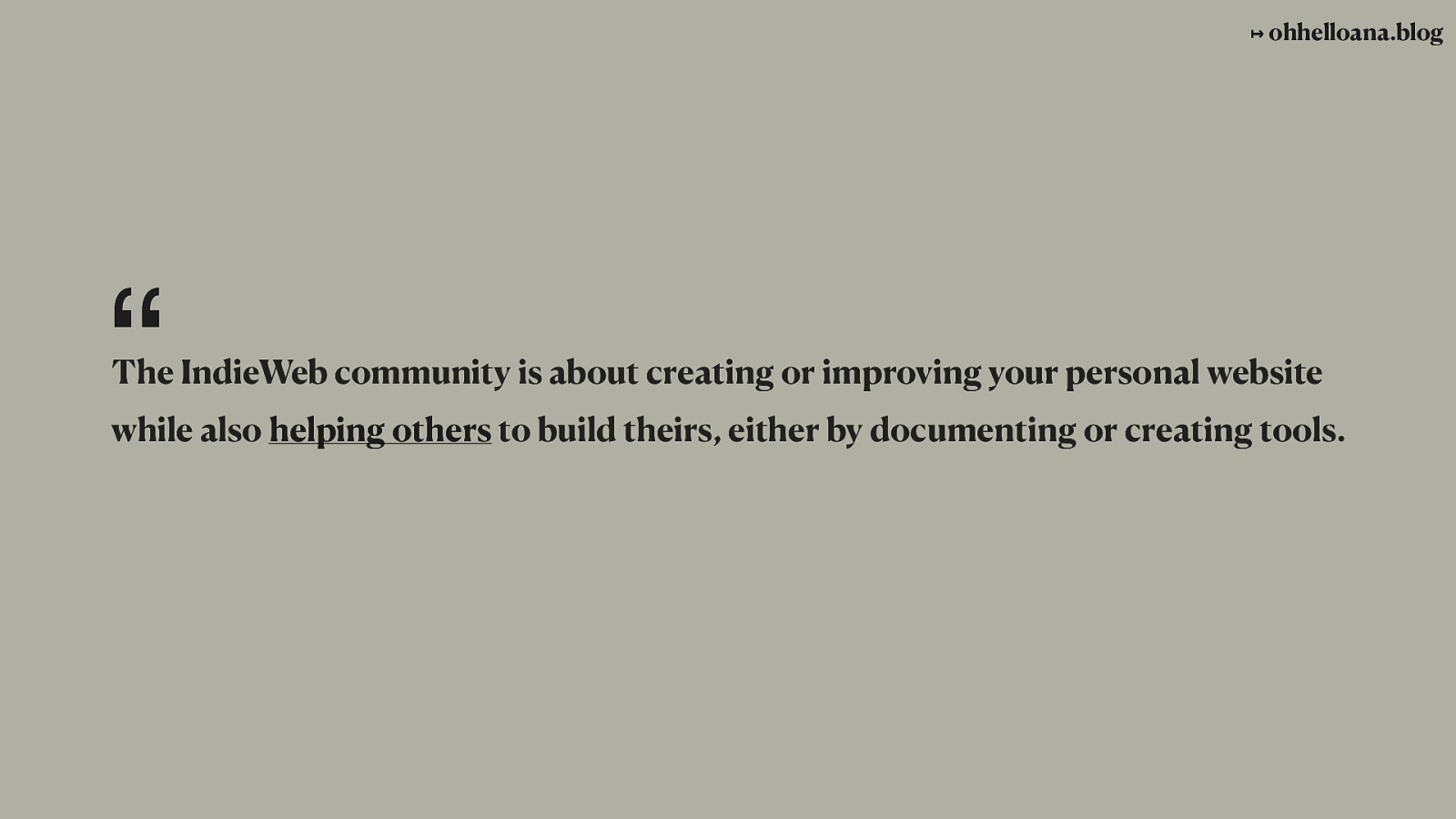
The IndieWeb community is about creating or improving your personal website while also helping others to build theirs, either by documenting or creating tools.
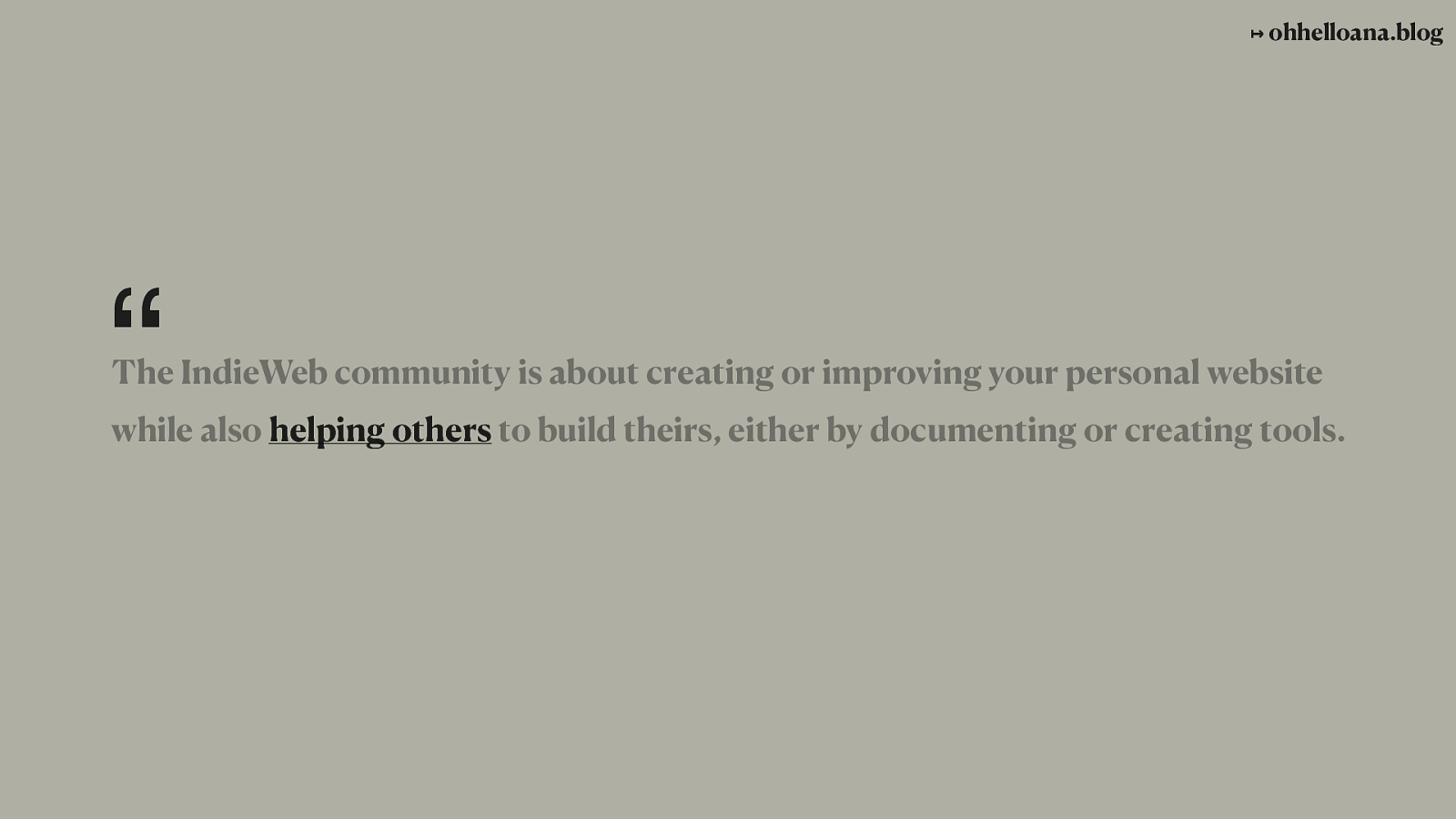
Emphasis on the helping others.
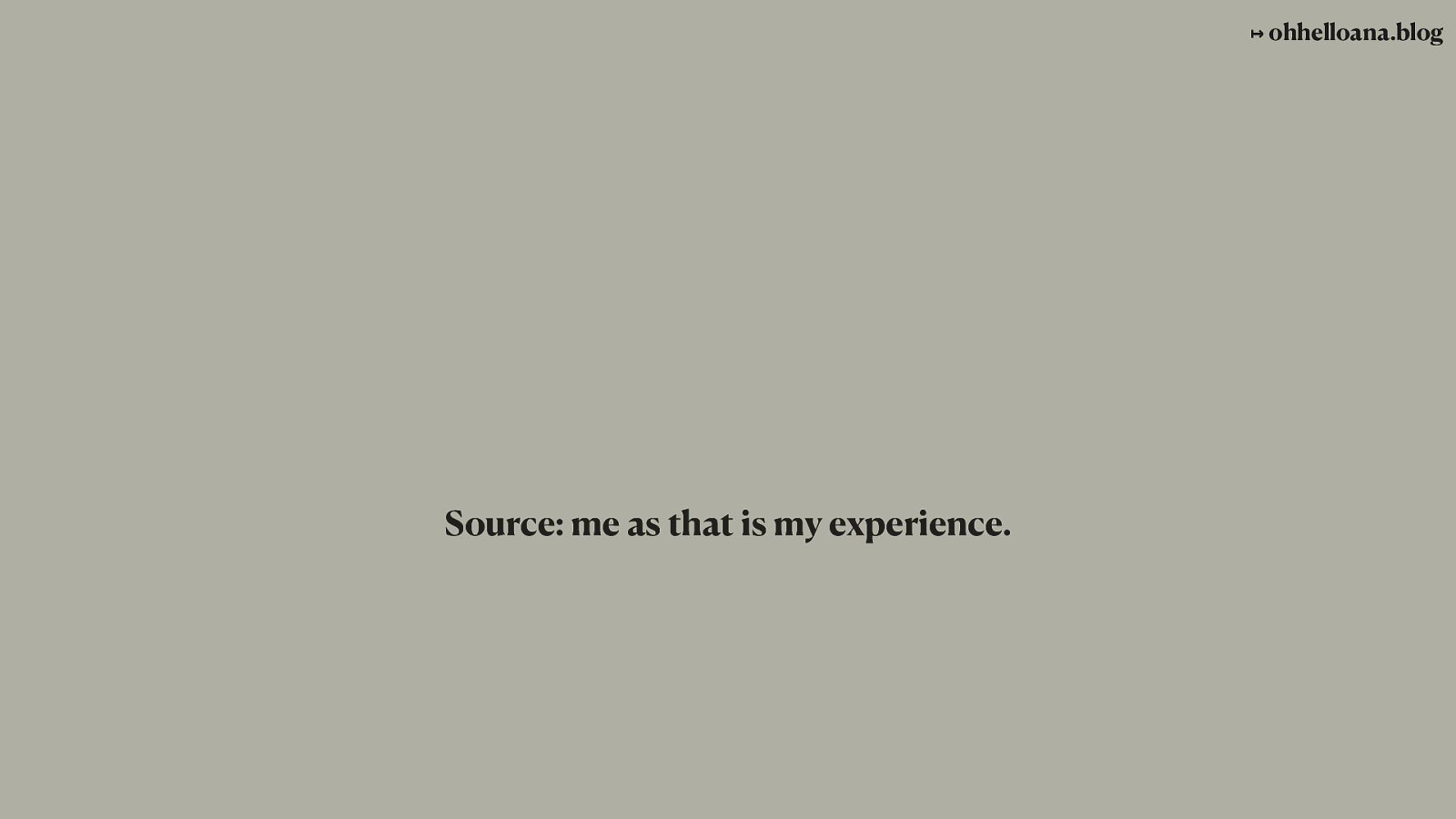
Source: me as that is my experience.
It does seem quite fitting for everyone who cares about open tech.
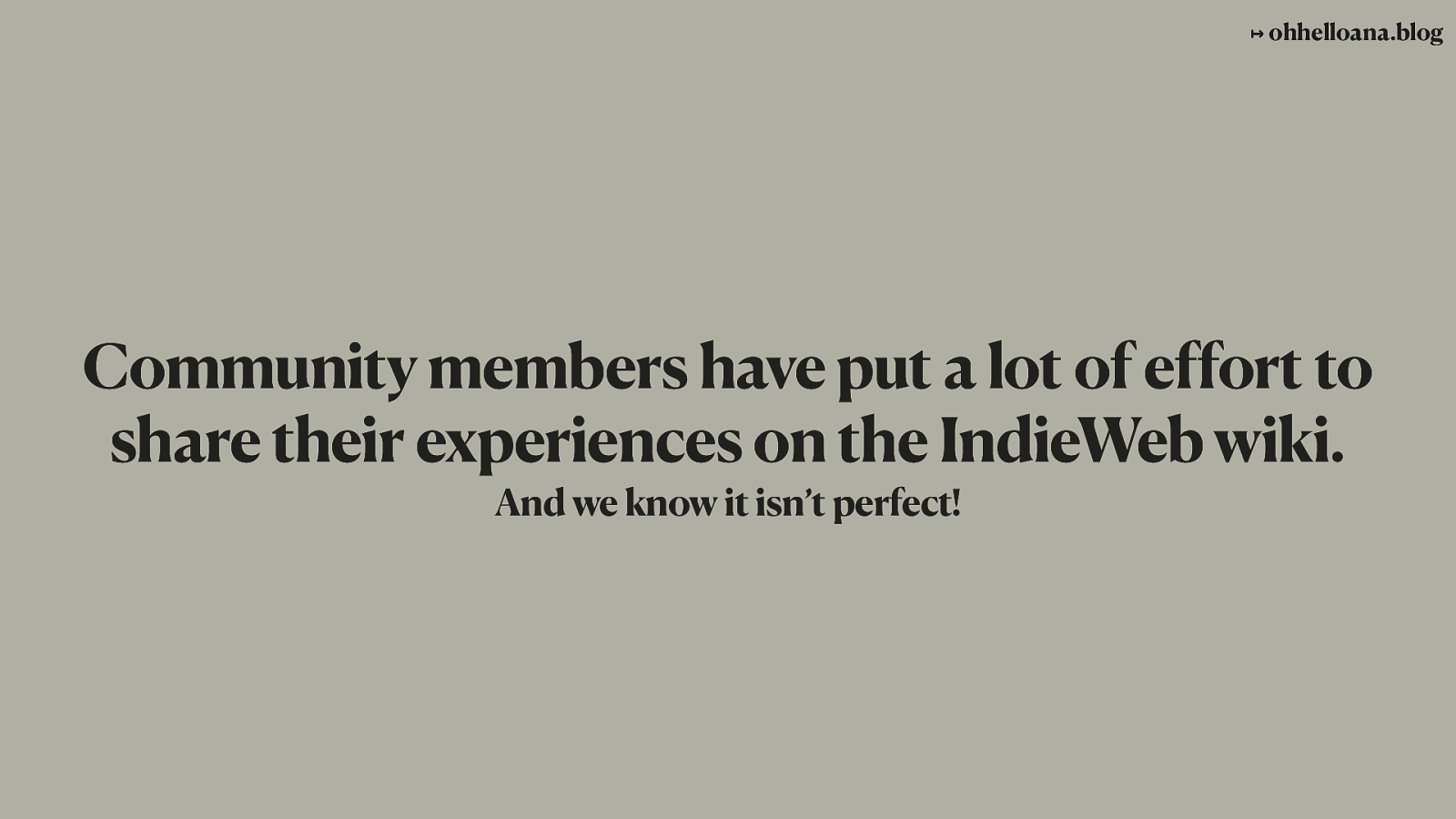
Community members have put a lot of effort to share their experiences on the IndieWeb wiki. And we know it isn’t perfect!
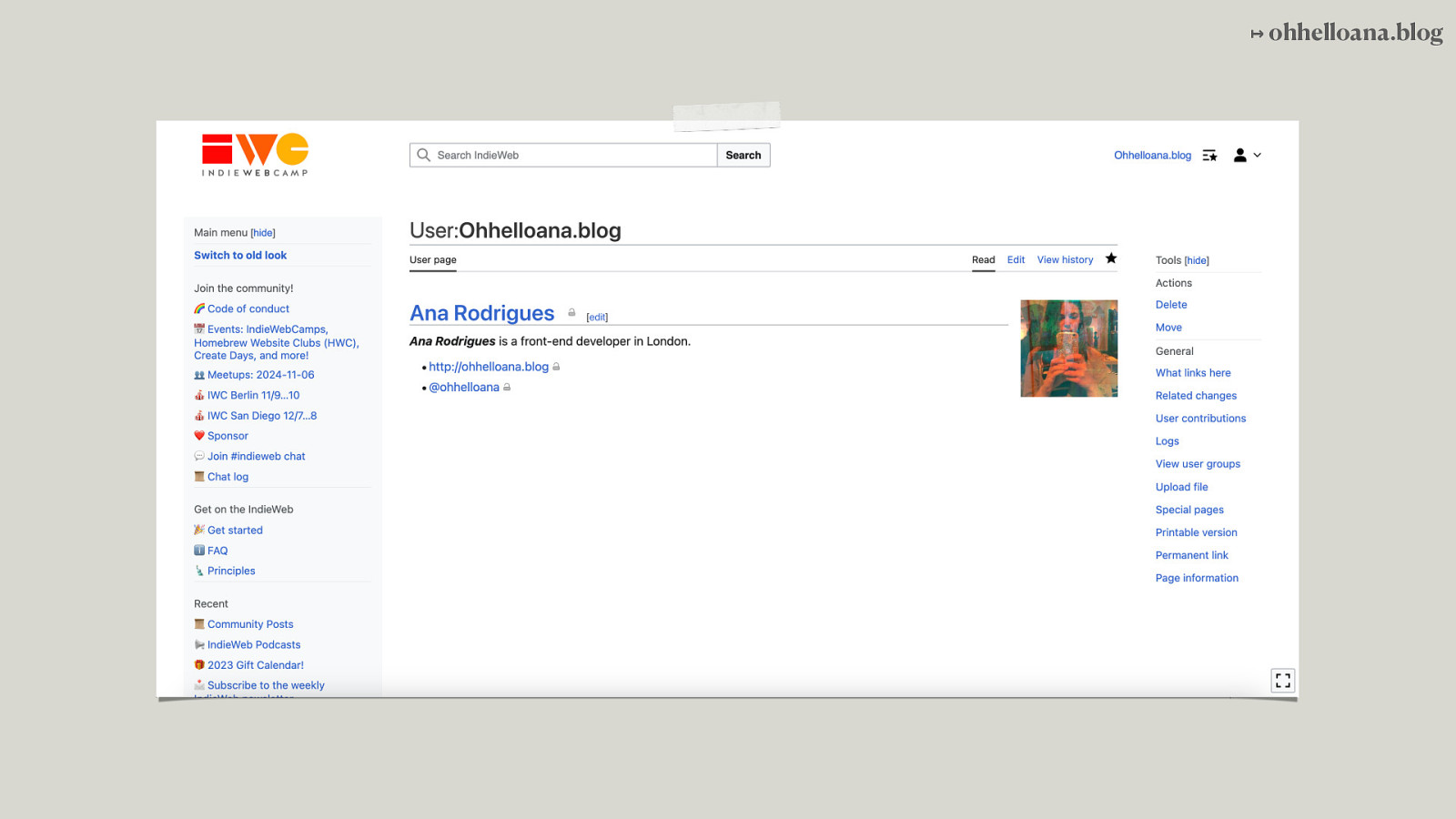
This is my profile in the IndieWeb wiki, which is quite a shy one. My contributions pale in comparison to other members but that’s okay. You do what you can.
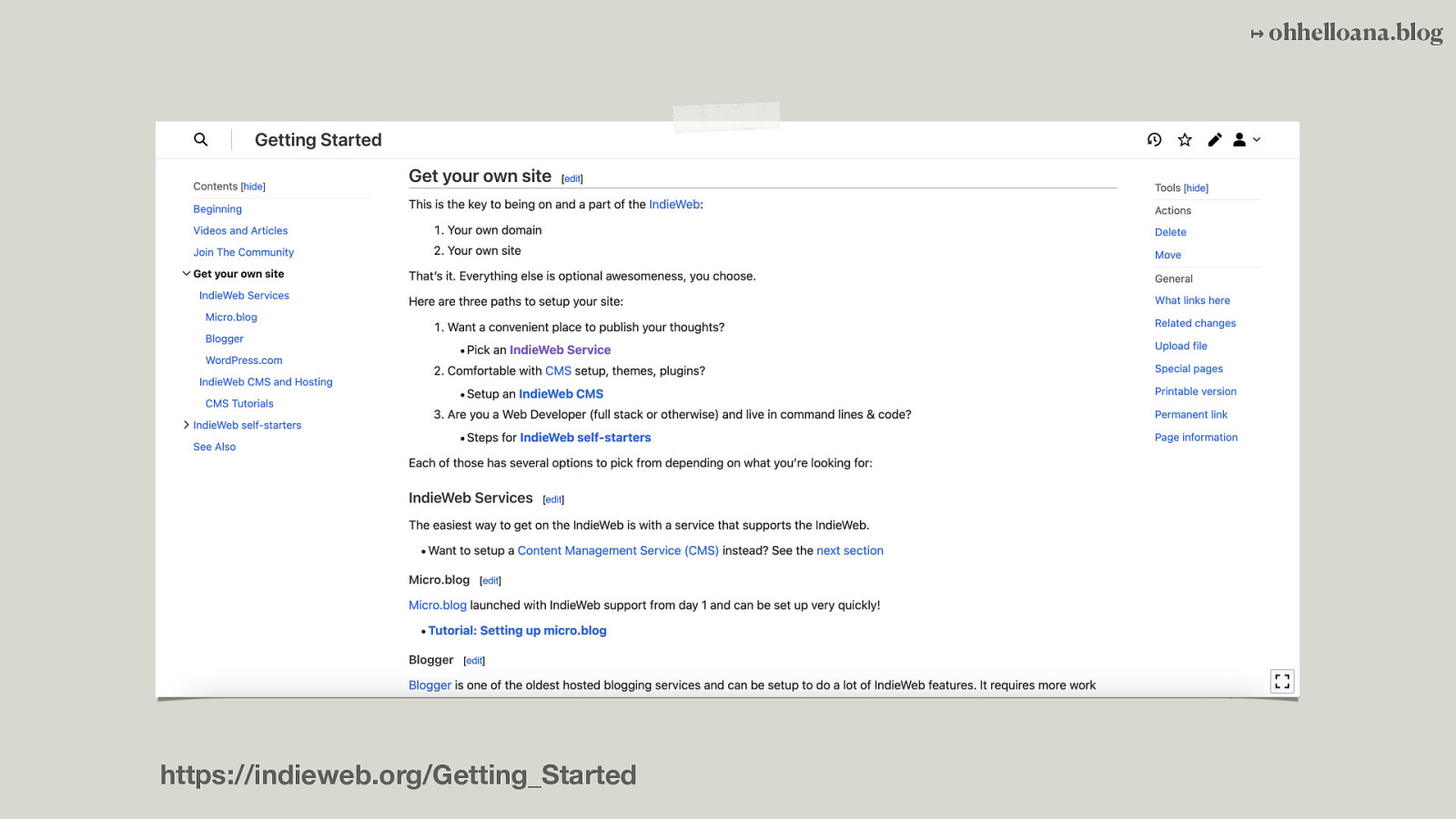
We know that it is overwhelming for anyone who isn’t familiar with tech jargon to start - but the community tries in their free time to bridge that gap by suggesting services like Wordpress or Micro.blog that are support the IndieWeb.
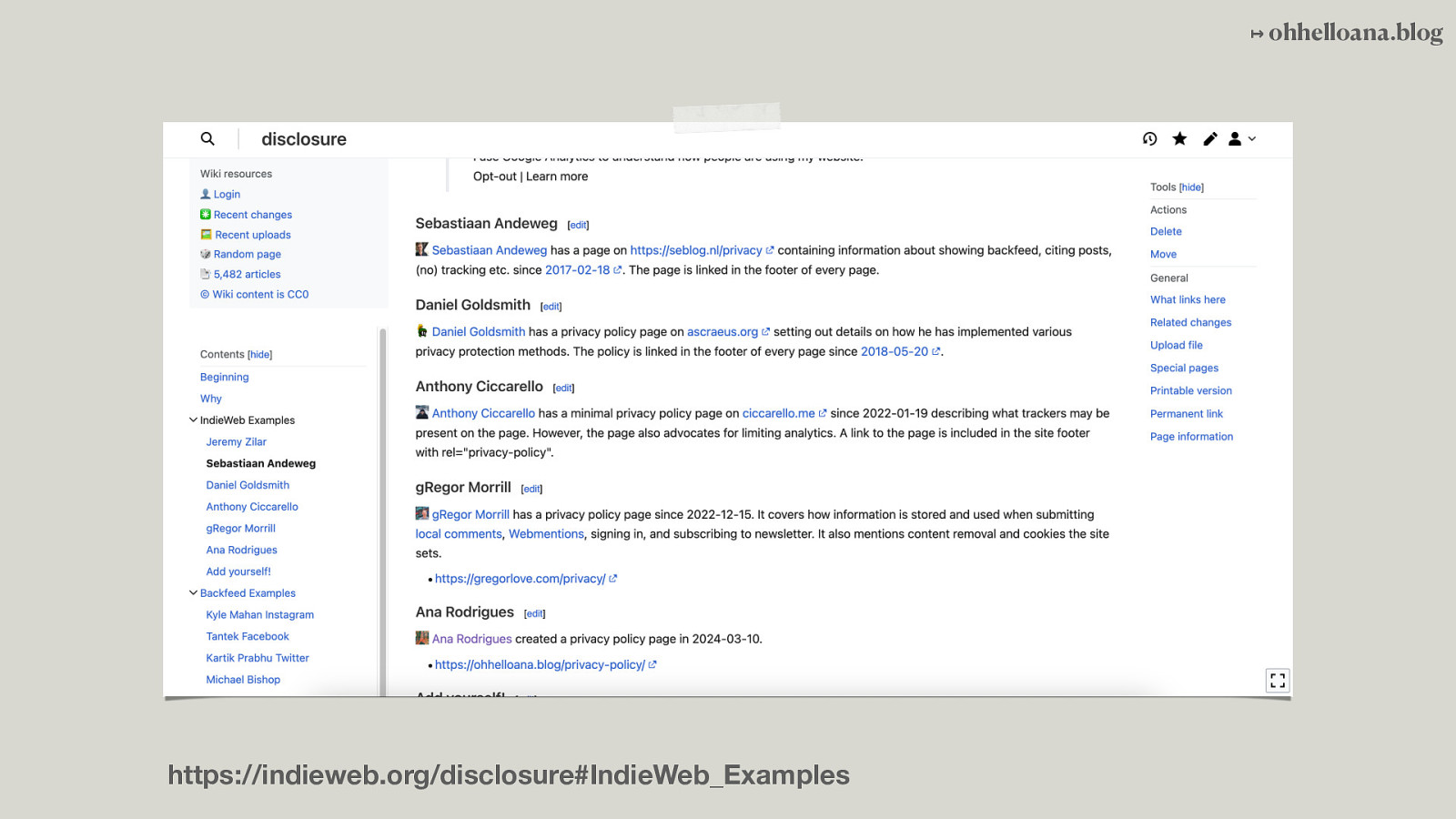
People in the community share how they built something on their own website.
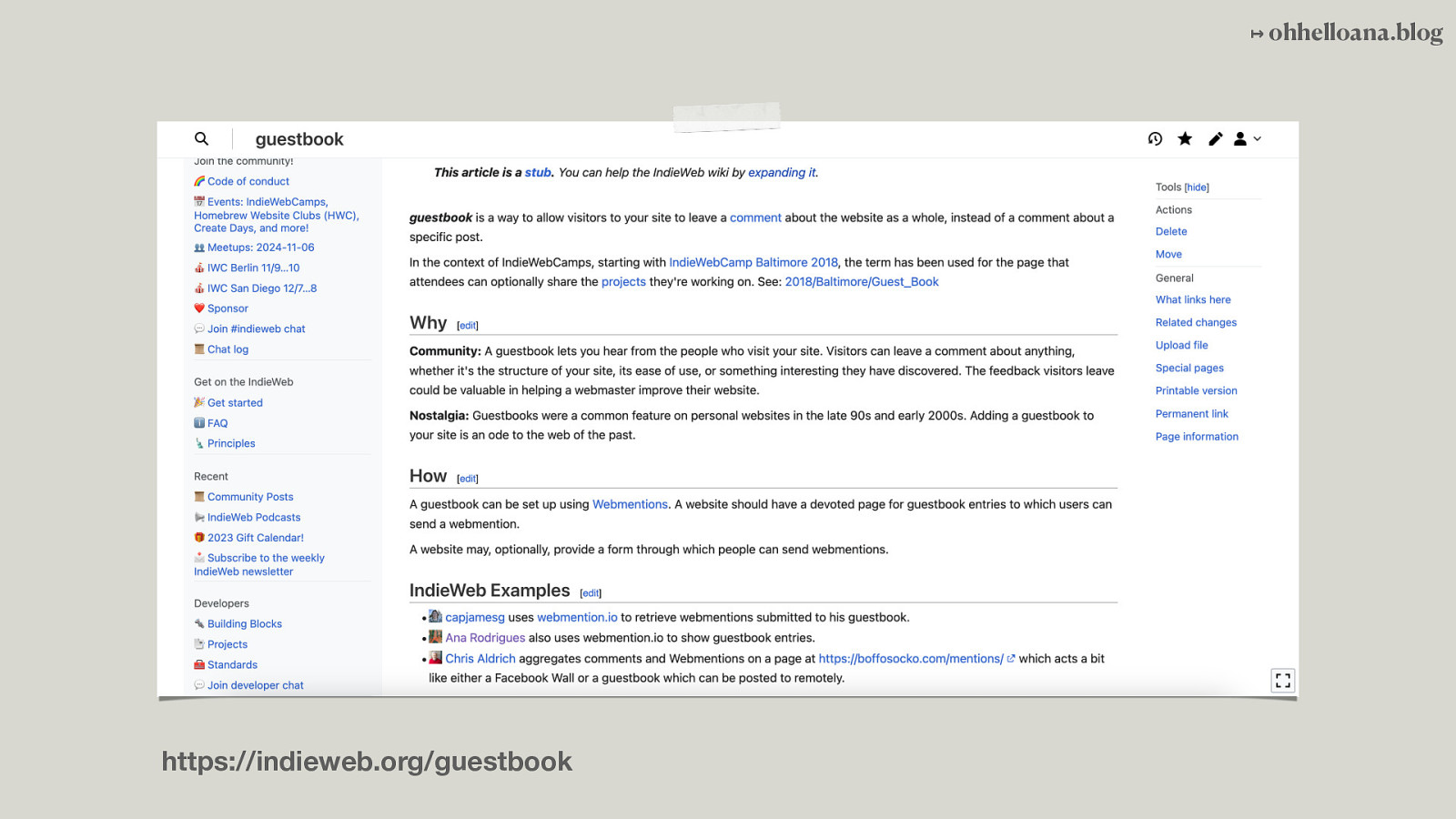
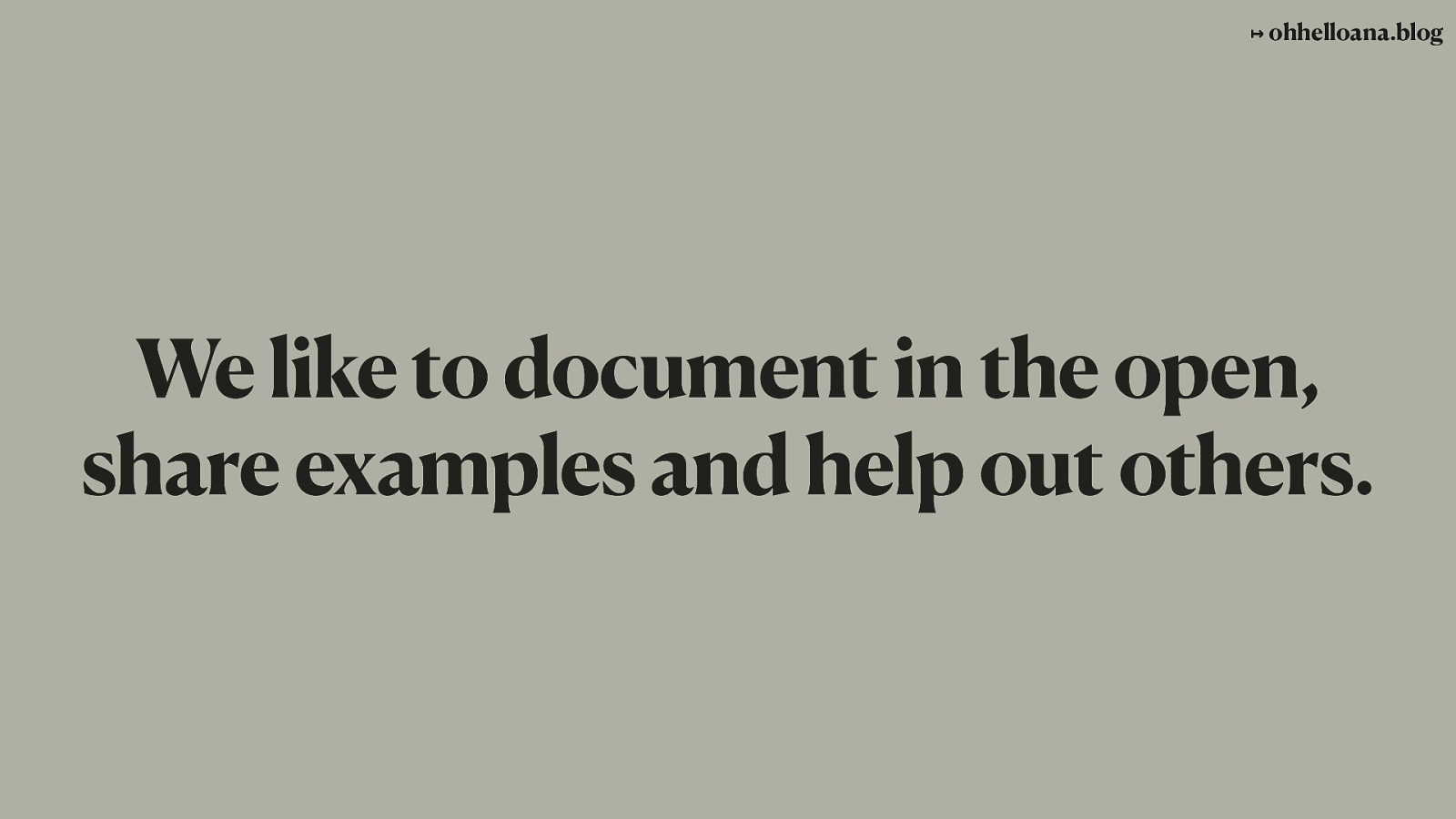
We like to document in the open, share examples and help out others.
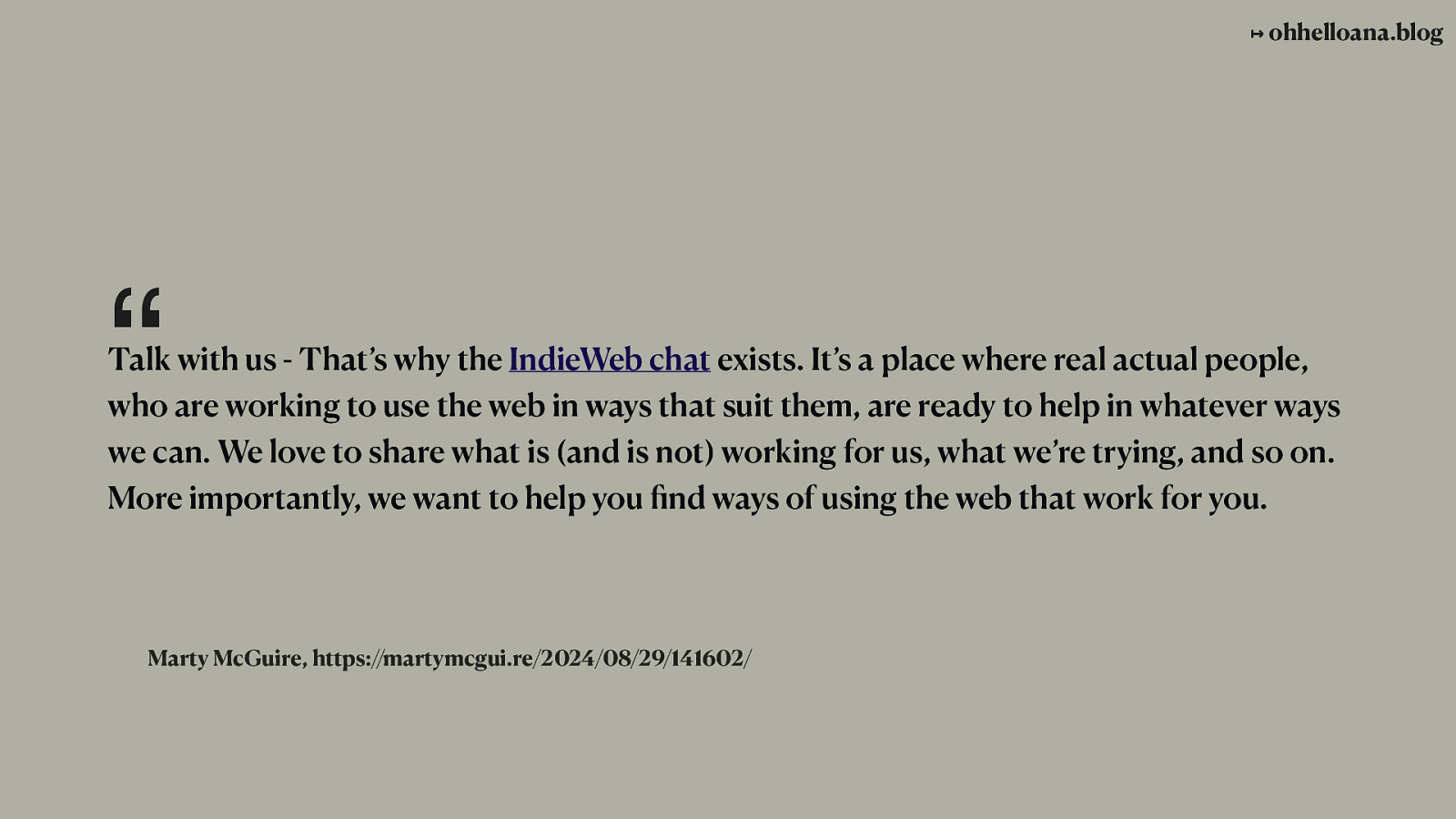
Marty puts it into better words: “Talk with us - That’s why the IndieWeb chat exists. It’s a place where real actual people, who are working to use the web in ways that suit them, are ready to help in whatever ways we can. We love to share what is (and is not) working for us, what we’re trying, and so on. More importantly, we want to help you nd ways of using the web that work for you.”
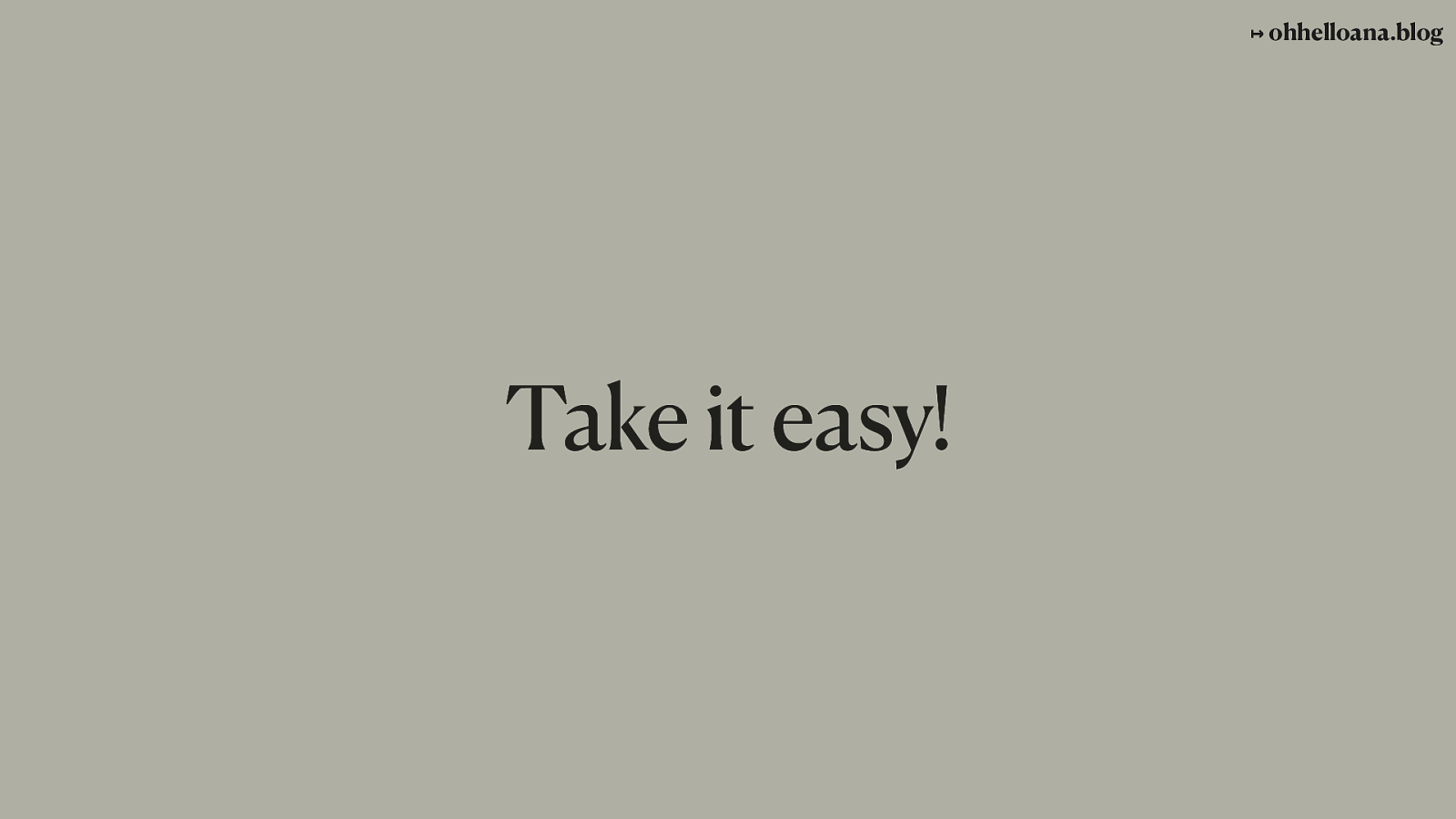
When I first started to participate in the community and attend their meet-ups and camps, I created this unnecessary pressure on myself to do and use all the protocols and apis suggested in order to create a full “social” experience from my website to corporate silos.
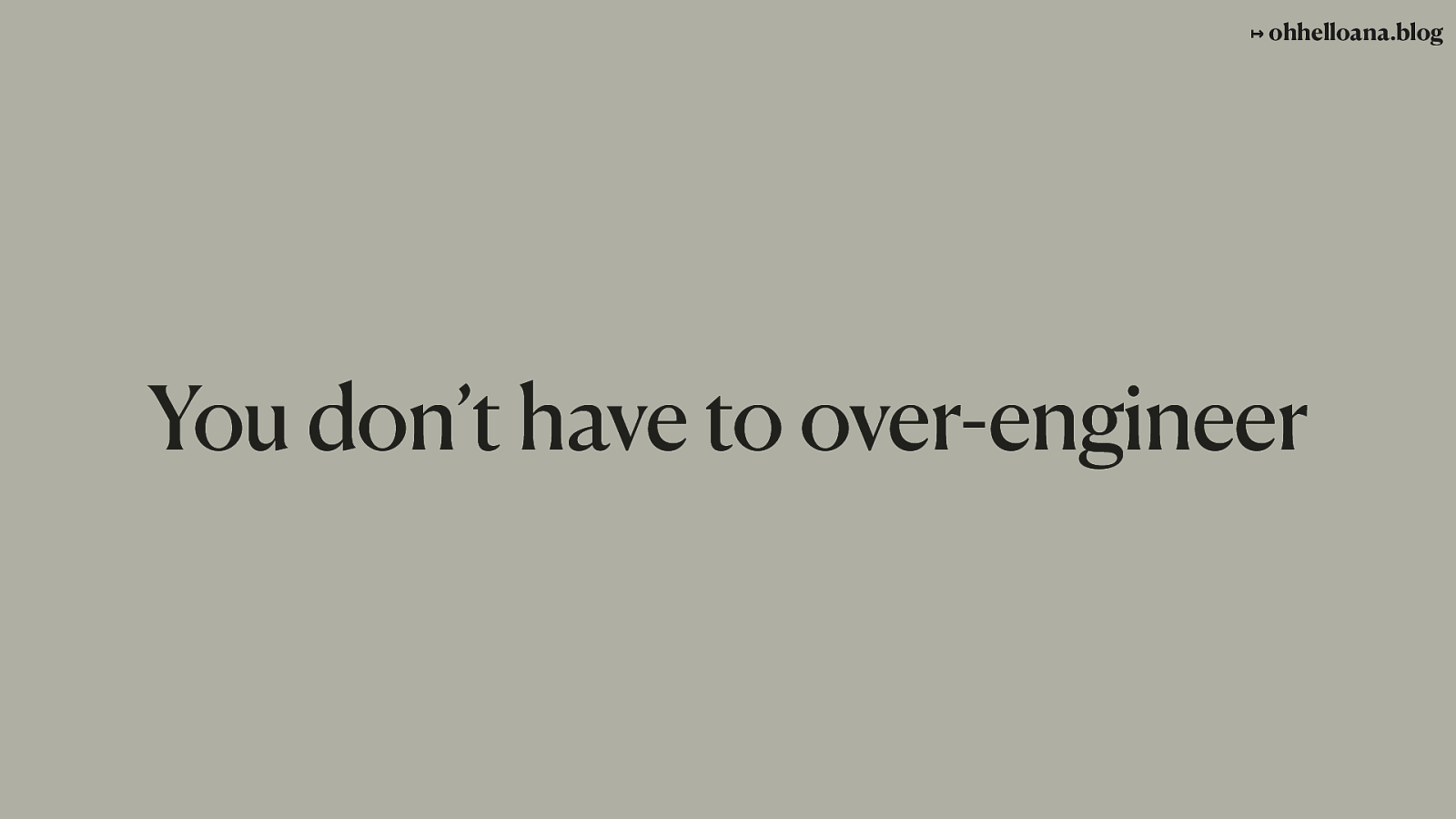
I’ve been saying since 2018 that “my goal is to create my own micropub endpoint” and I end up only focusing on that and doing nothing else - to little success to this date. And I believe this is what stops a few people from fully embracing the fact that they too are keen on the community. Like myself in the past, there’s a lot of people who may fear that you’re only a real IndieWeb person if you build it all. As lame as it is, I’m going to once again quote myself:
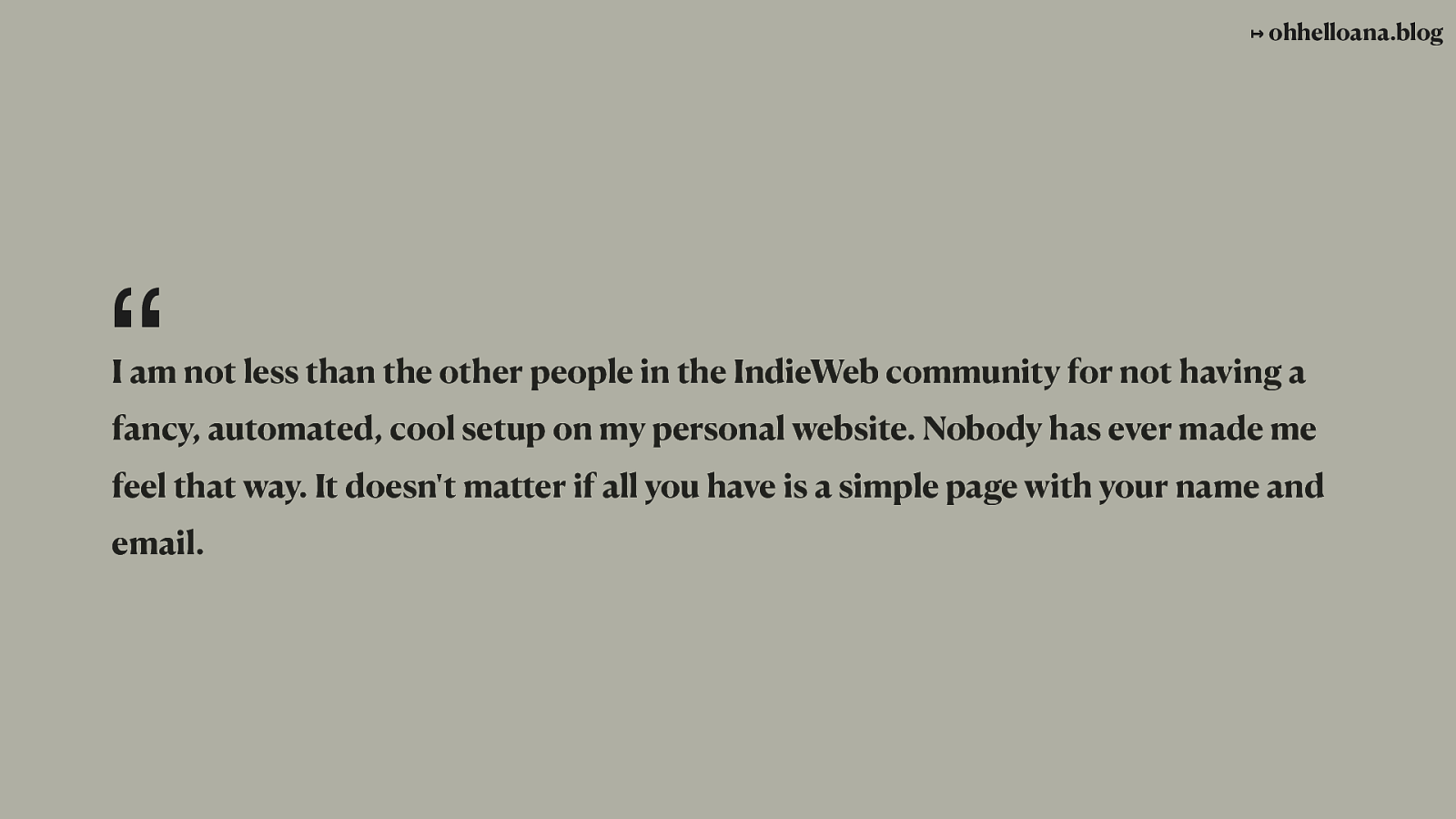
I am not less than the other people in the IndieWeb community for not having a fancy, automated, cool setup on my personal website. Nobody has ever made me feel that way. It doesn’t matter if all you have is a simple page with your name and email.
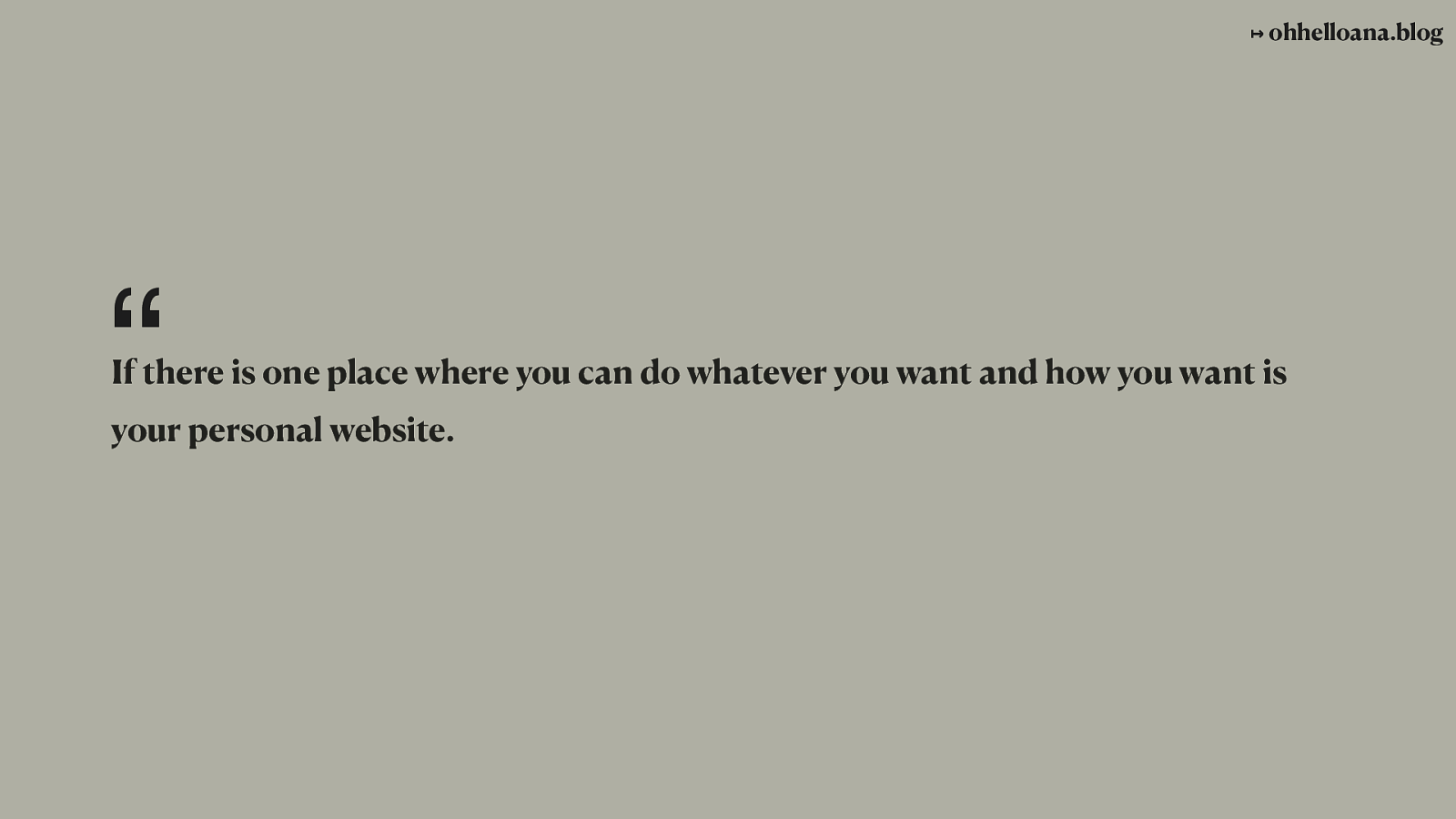
If there is one place where you can do whatever you want and how you want is your personal website. I’m lucky to have found a community that supports this.
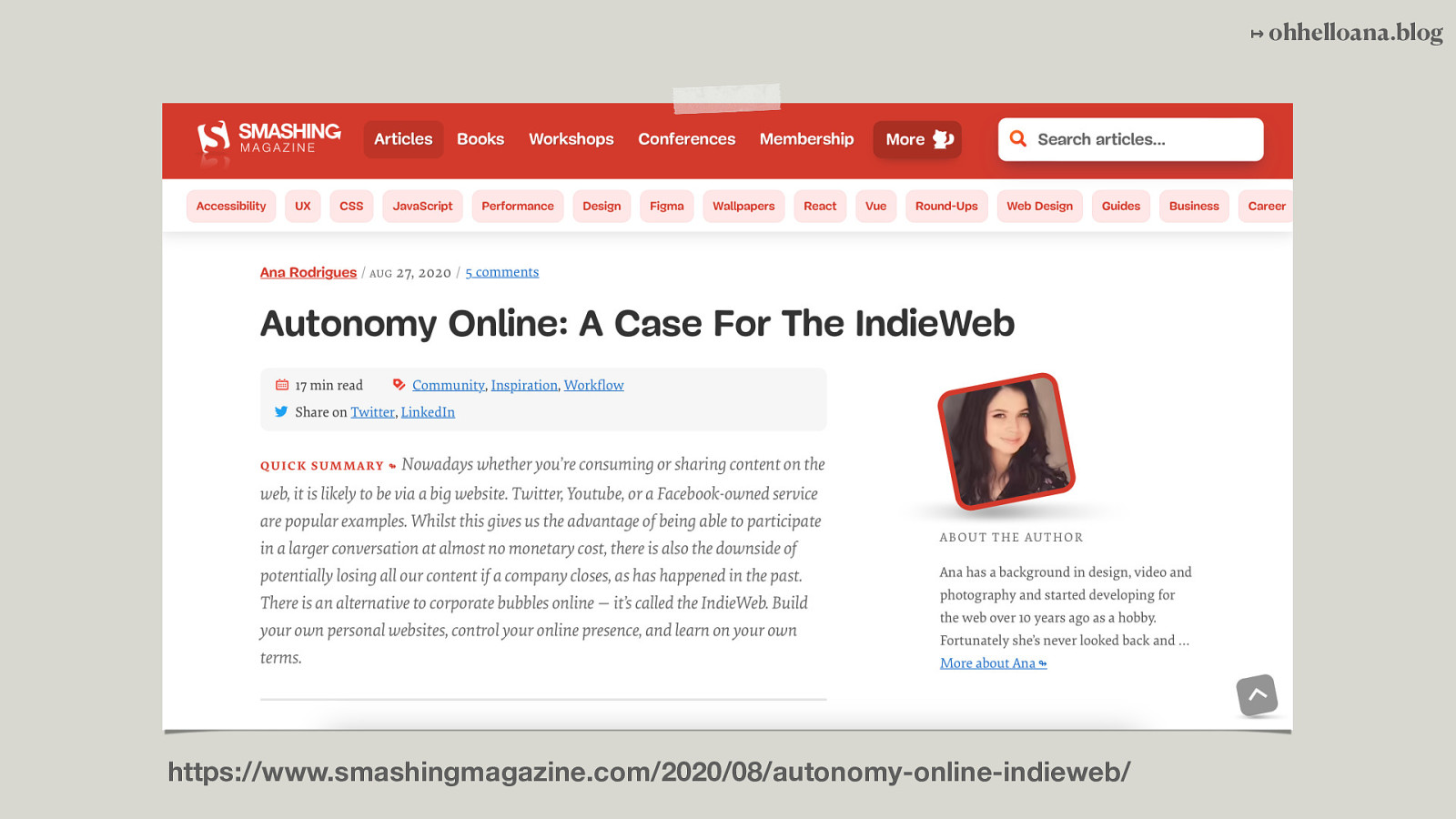
And it is true: a while back I wrote about the IndieWeb for Smashing Magazine and went a bit into more detail on a few tech bits but the reality is I don’t even implement the stuff I mentioned! I’m still as Indie Web as it gets!
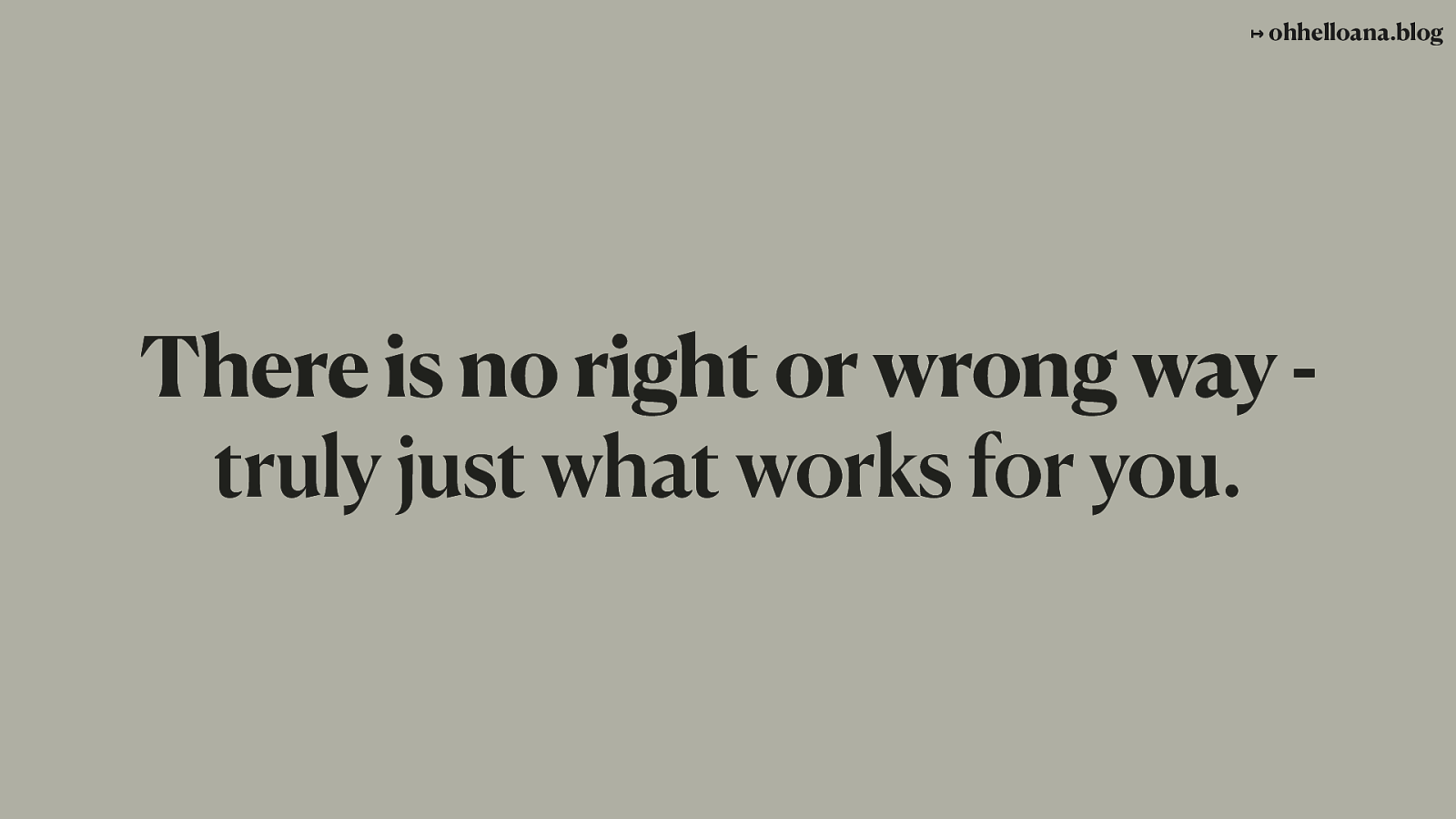
There is no right or wrong way truly just what works for you. Having my own personal website
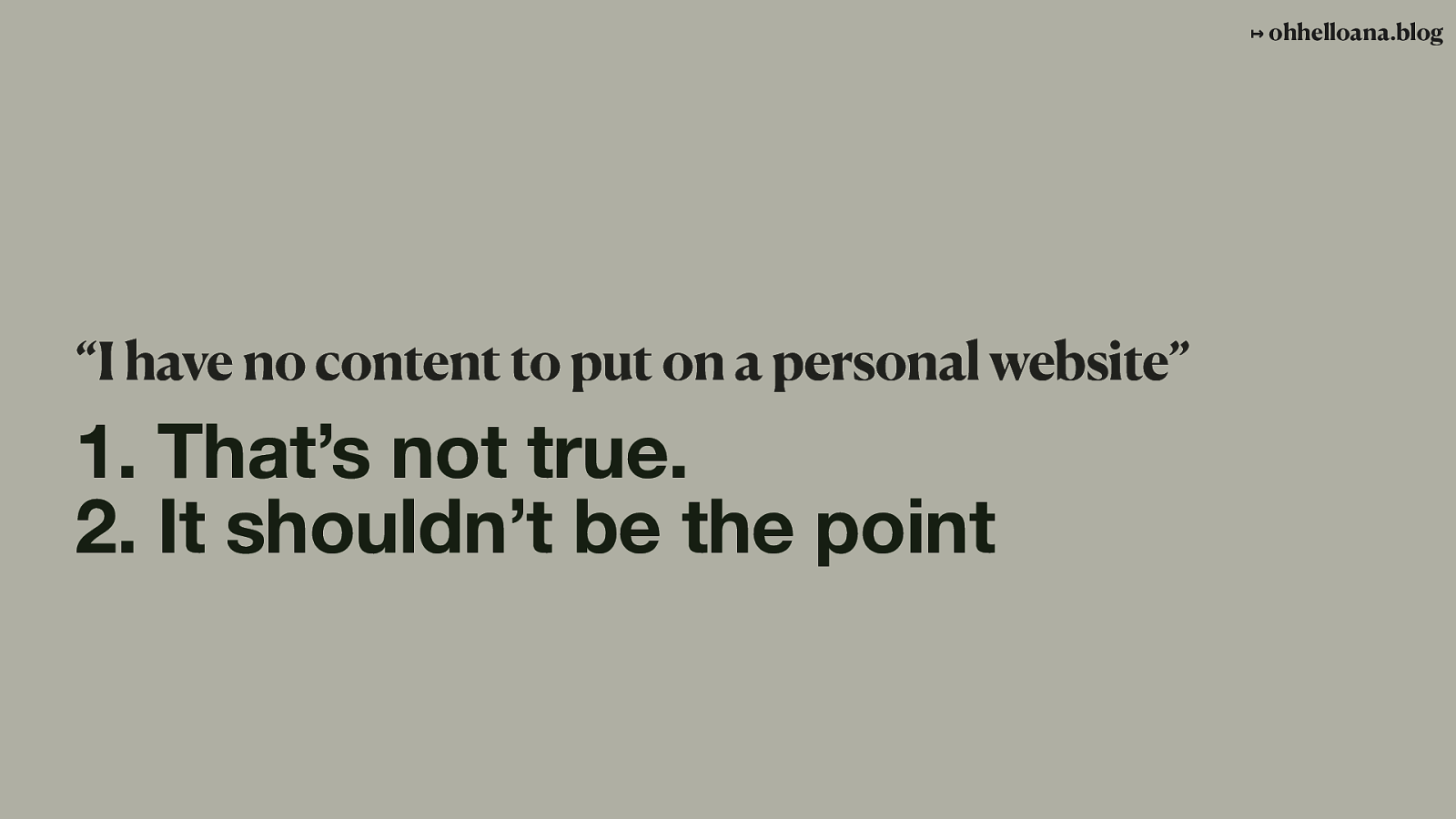
“I have no content to put on a personal website”
The goal of a personal website is to be reachable. Your content might just be your name and your contact information. And that’s fine.
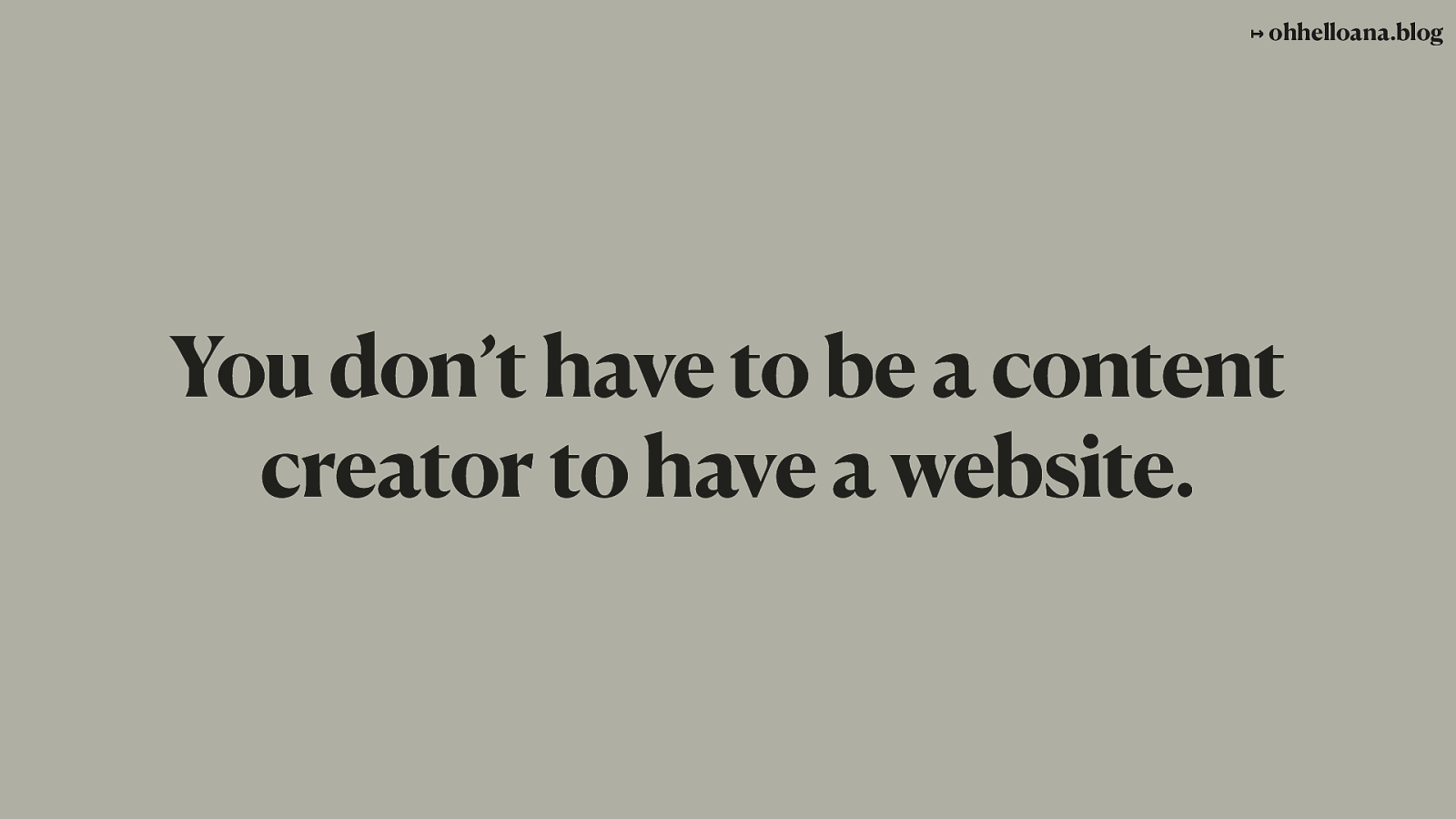
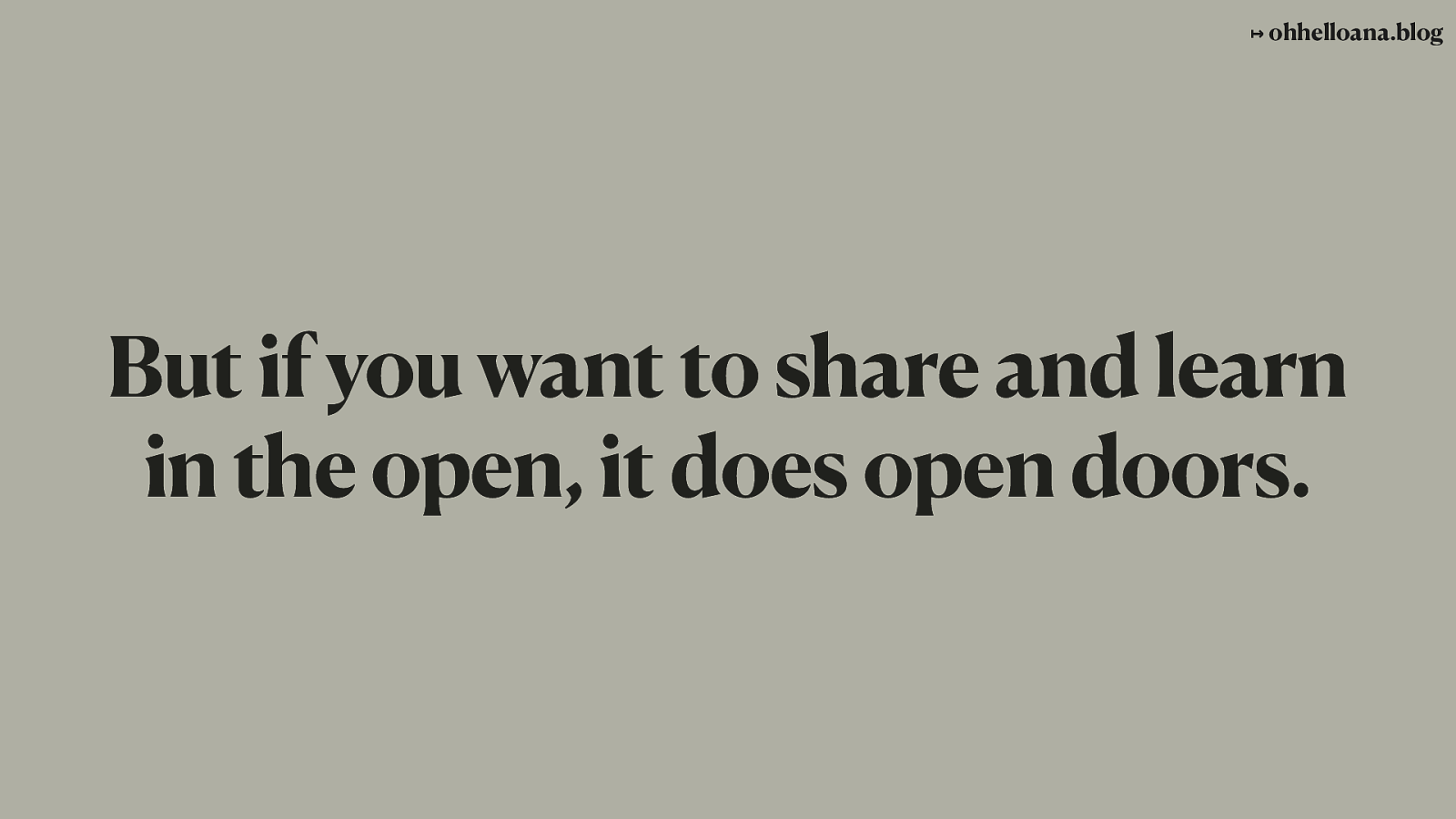
But if you want to share and learn in the open, it does open doors.
Being invited to be here today, being invited to write about the IndieWeb community, having my blog posts shared far and wide is all due to me embracing sharing my experiences on my blog. You can also create your own digital blog, bookmarks rounds up, week notes, tutorials. Content that is findable and make you reachable without paywalls or sign-up accounts.
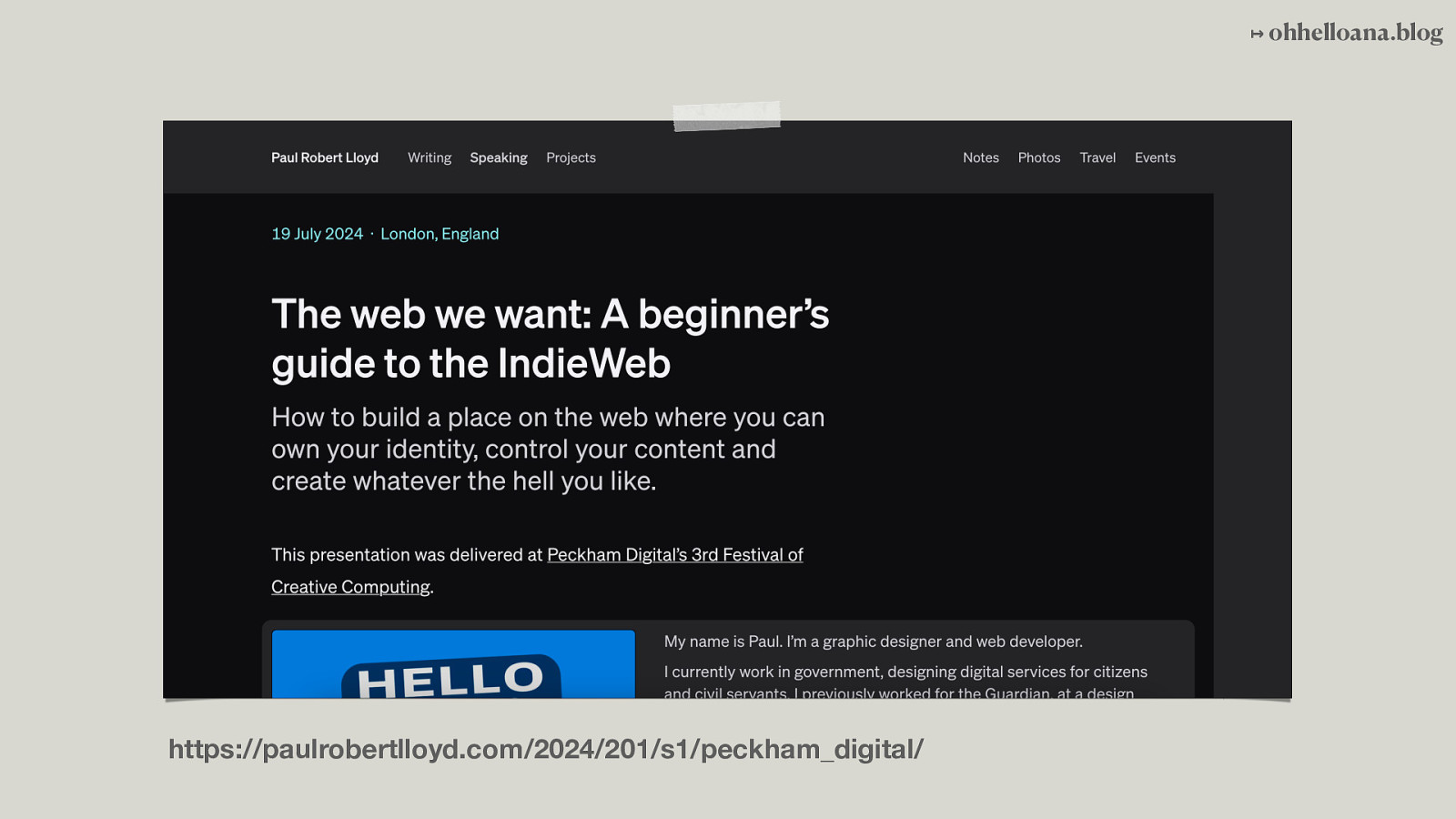
Recently, Paul Robert Lloyd shared a presentation that is a beginner’s guide to the IndieWeb and made it all available on his website - truly living the IndieWeb spirit! And I really recommend it as it goes a bit into more technical detail and shares some ideas in detail.
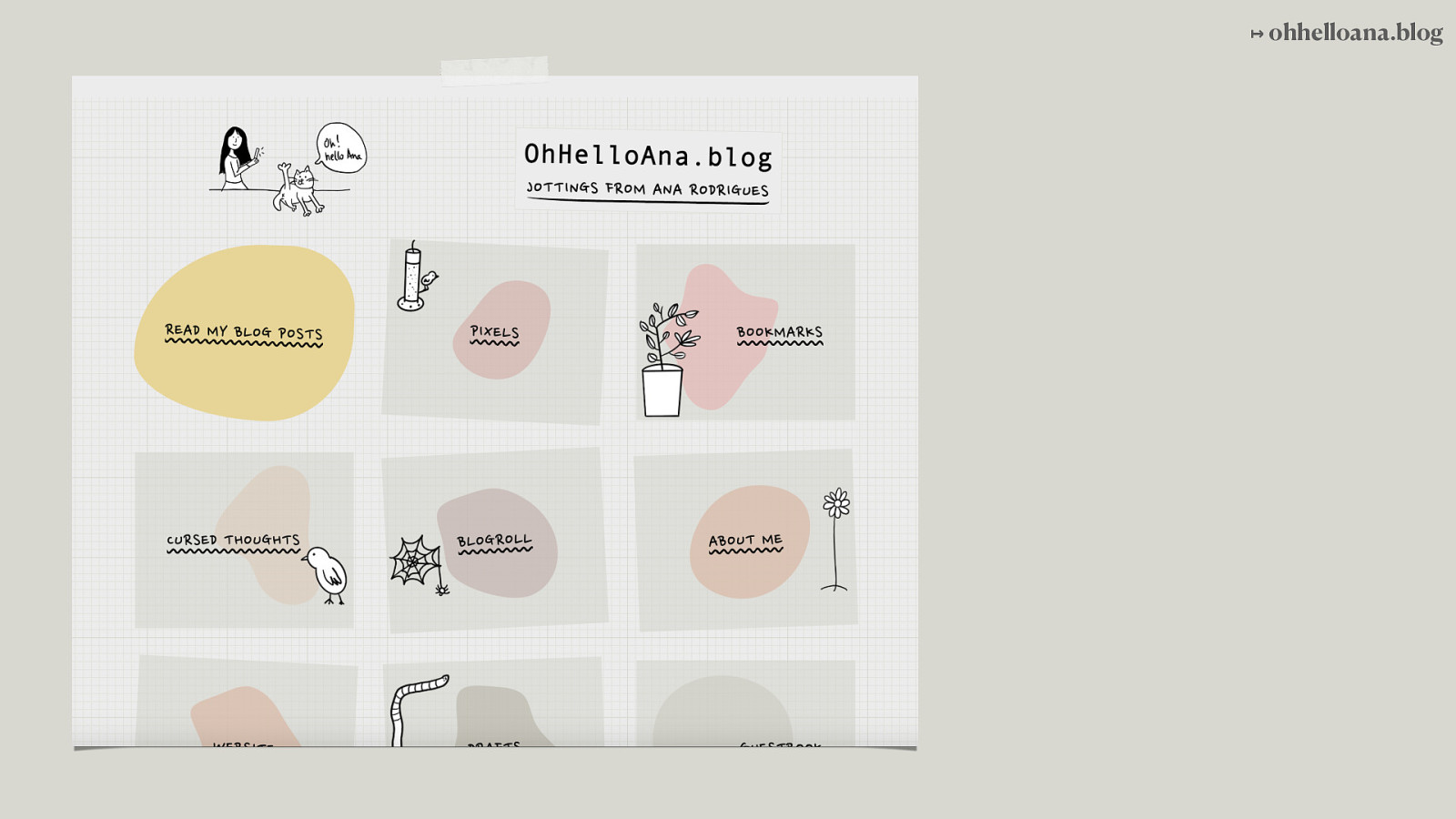
And as for my current blog - it is a constant work in progress with ambition and lot of bugs.
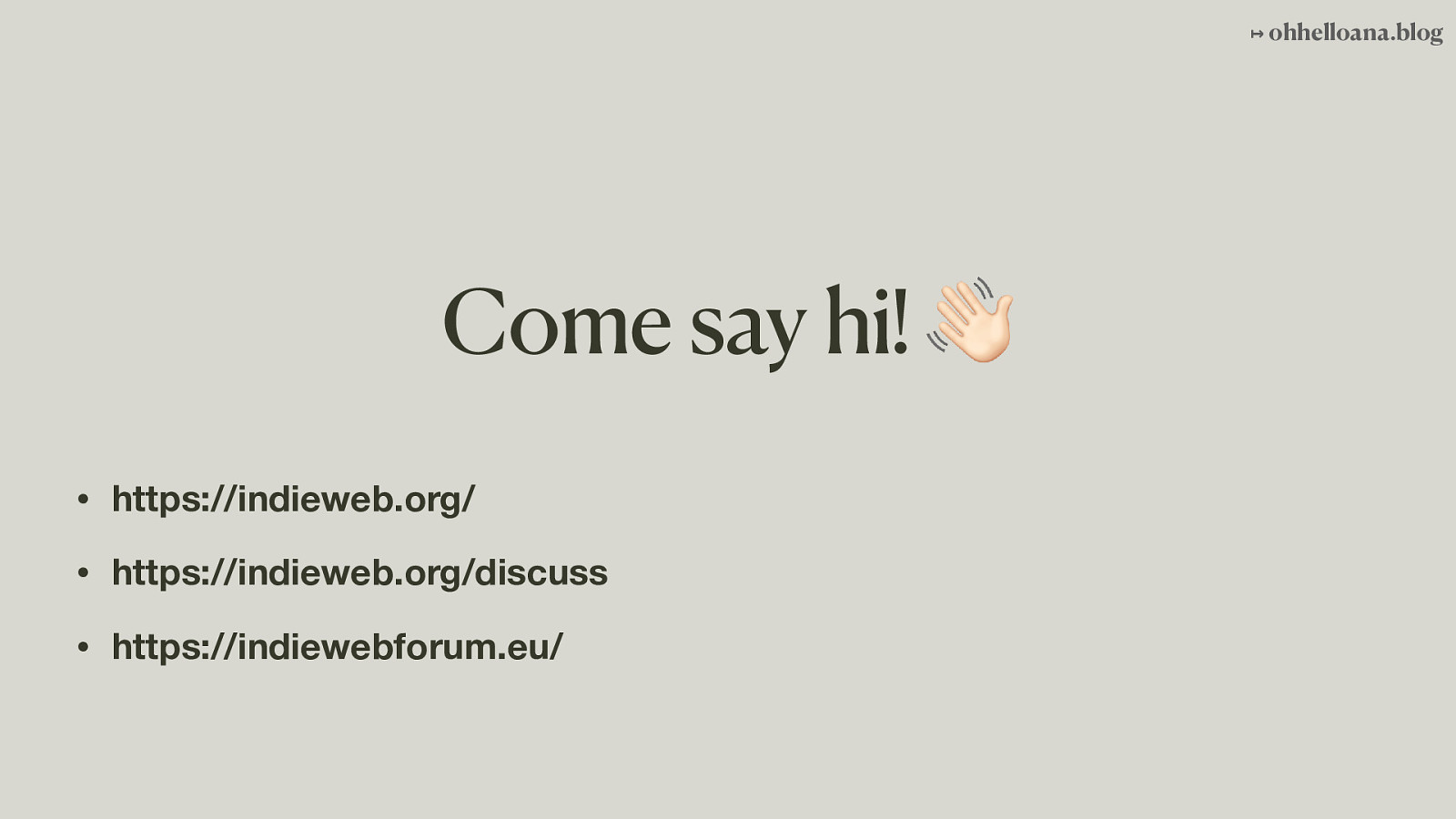
We would love to see any of you pop by our chat and say hi - but it’s okay if you don’t feel like it. I know I am biassed. Join whatever community or safe place that feels better for you - all we can wish for is that you find some time to embrace creating your personal website.
